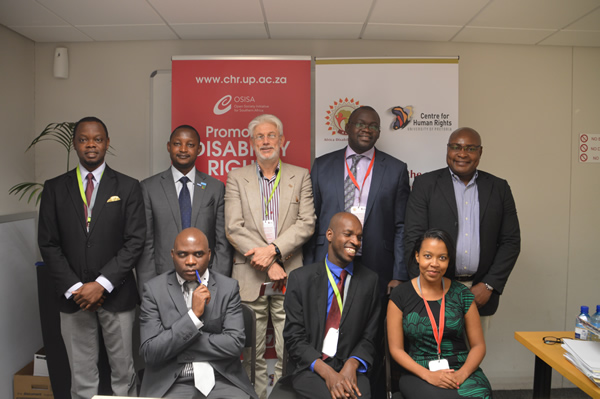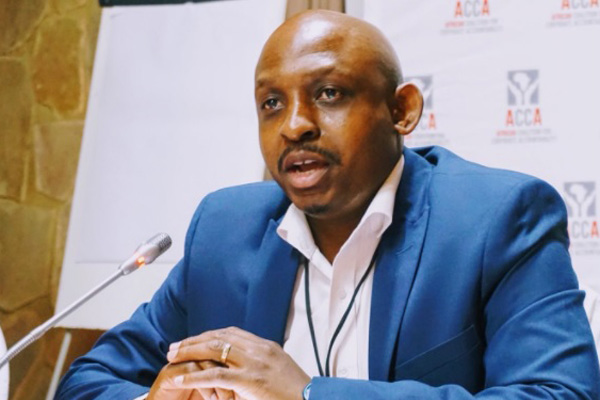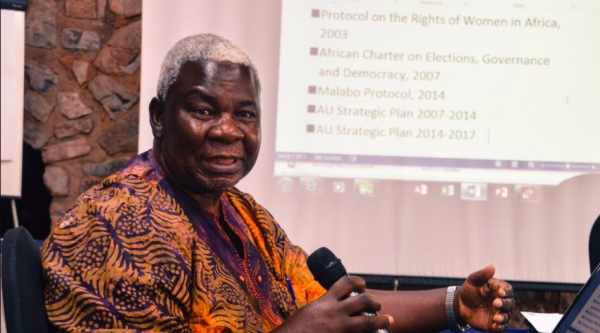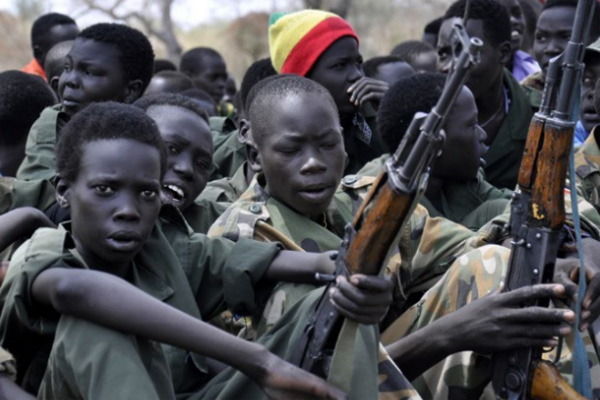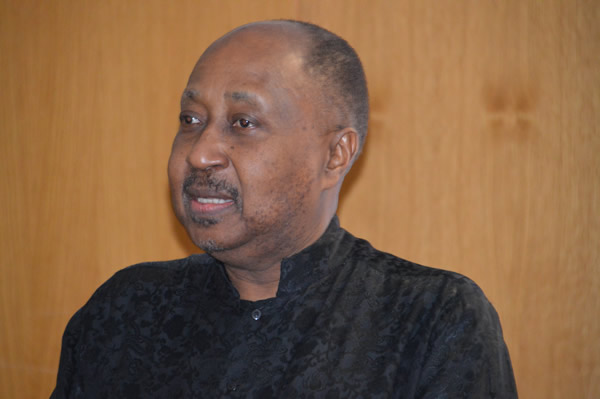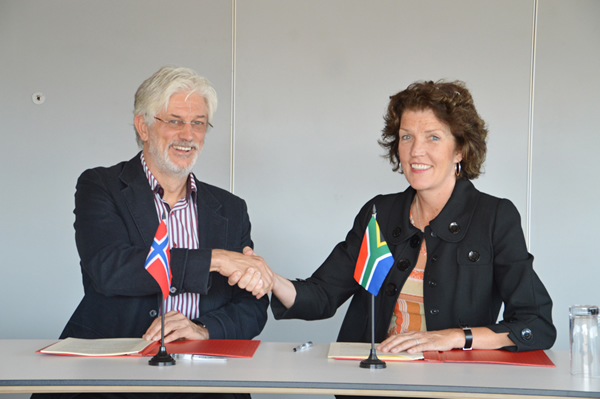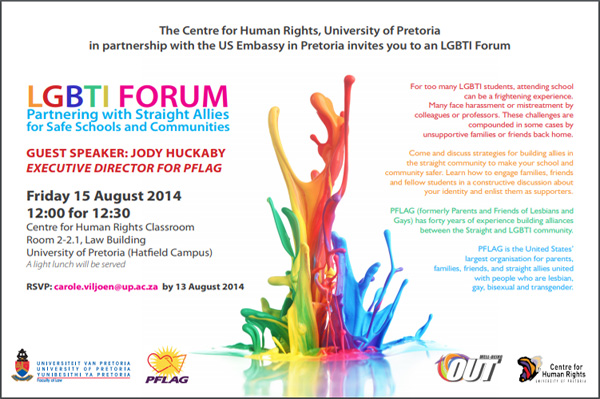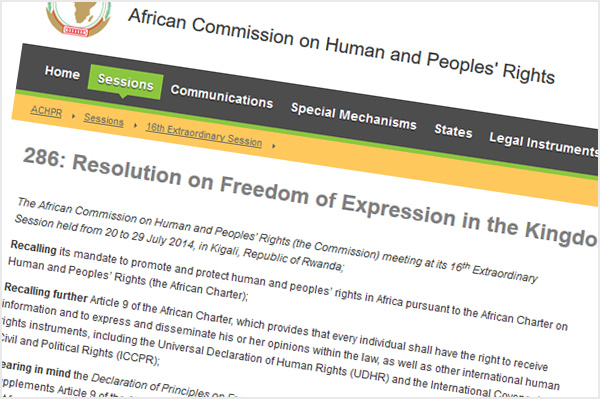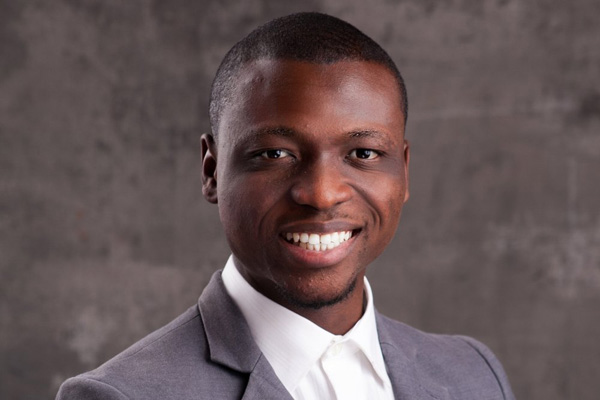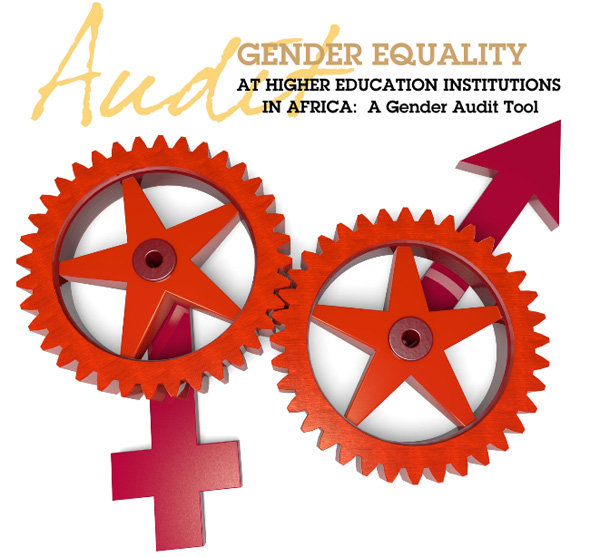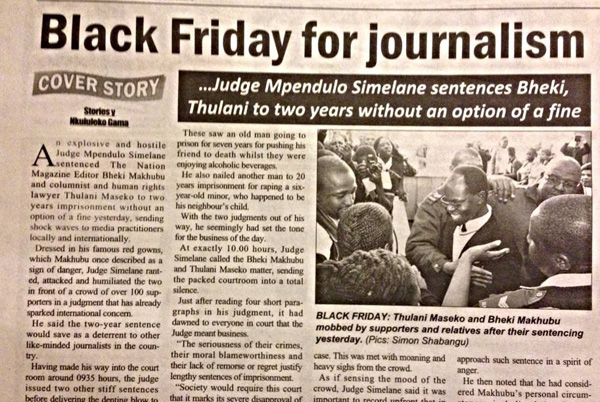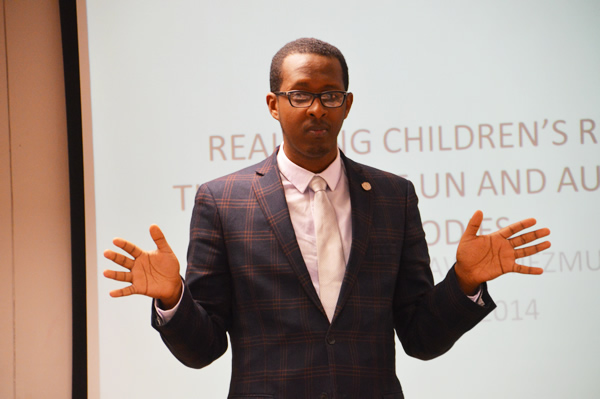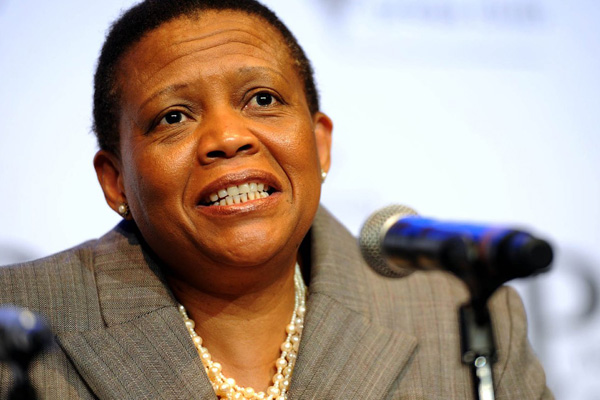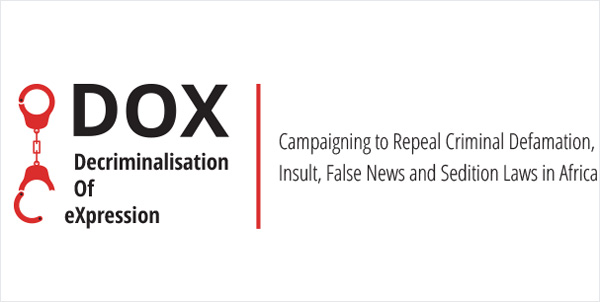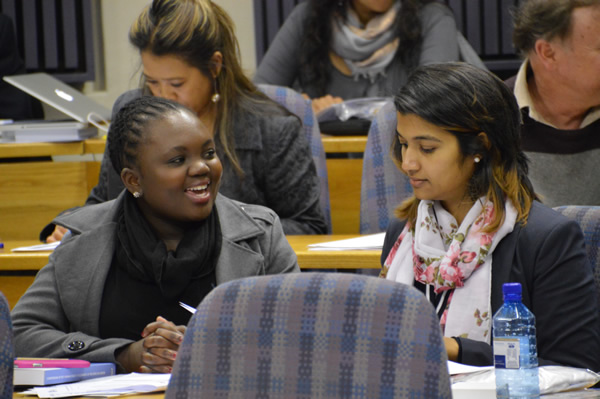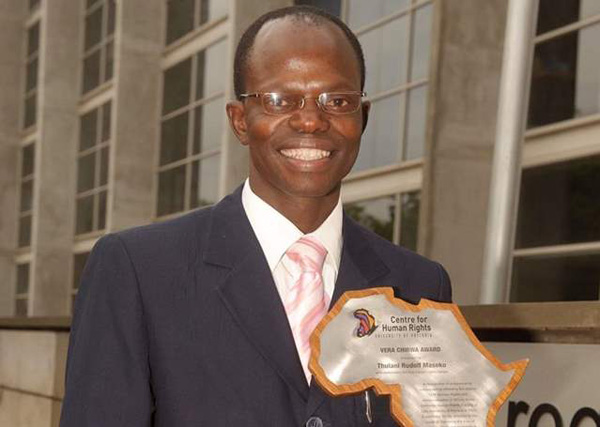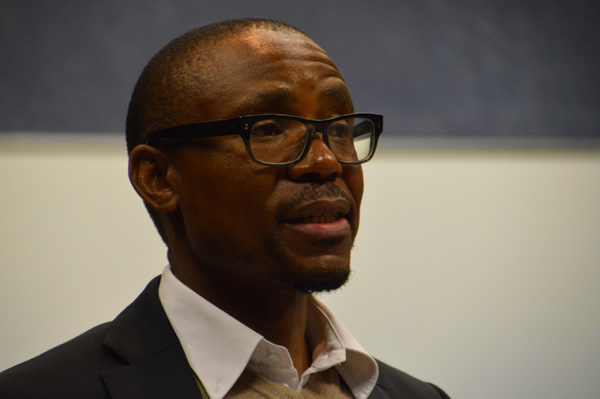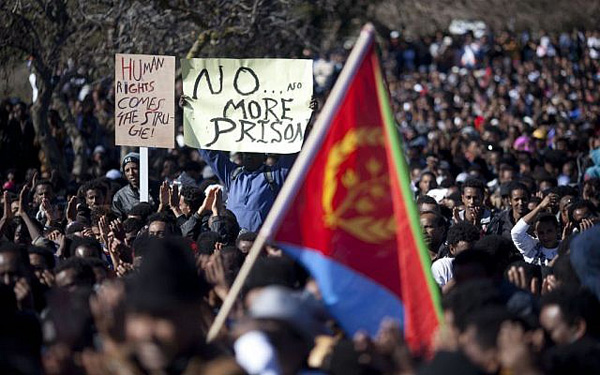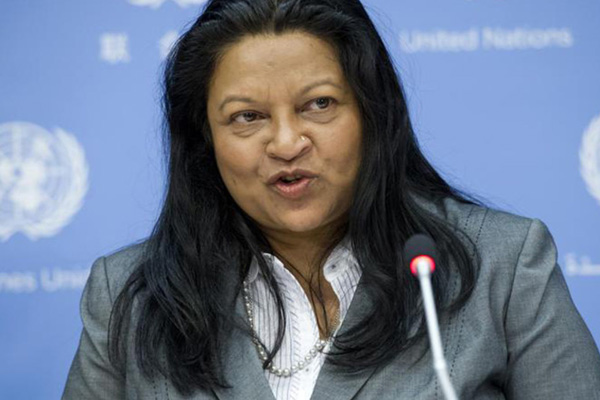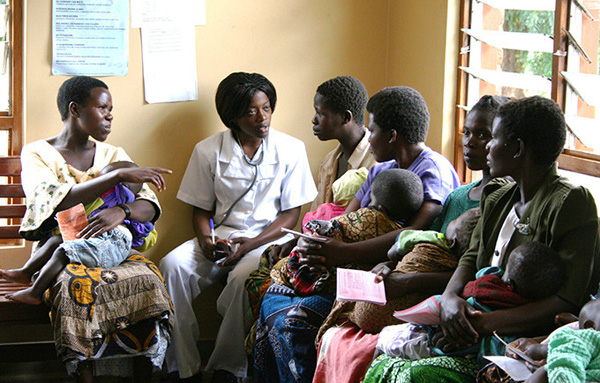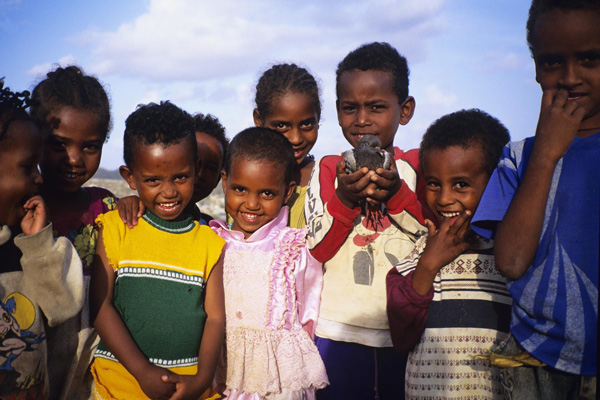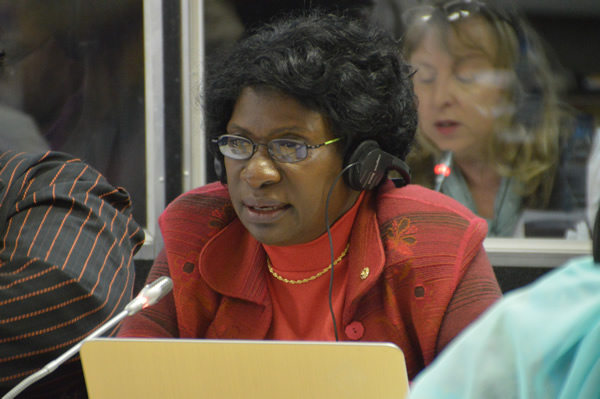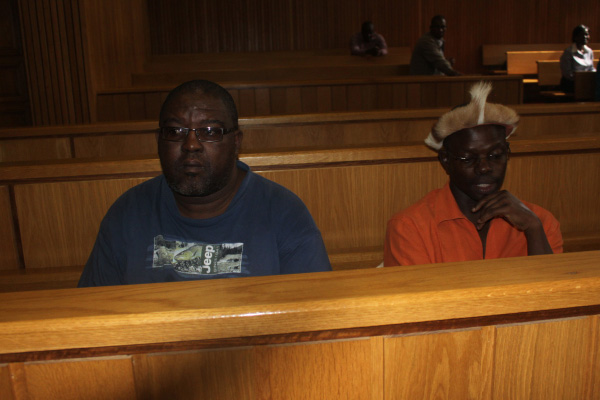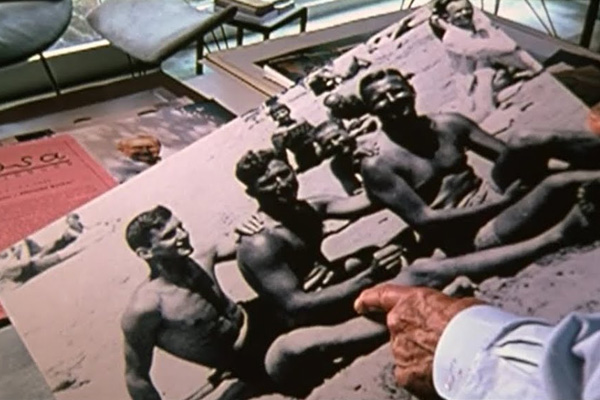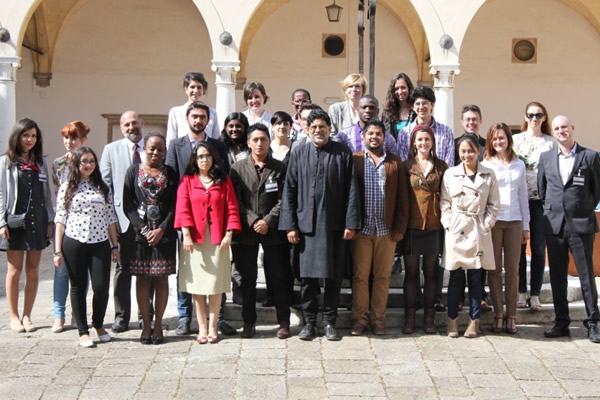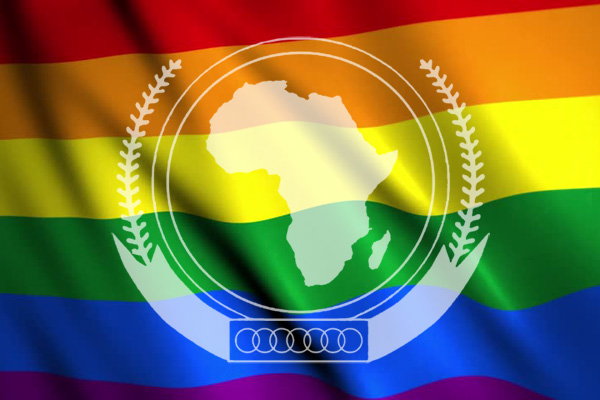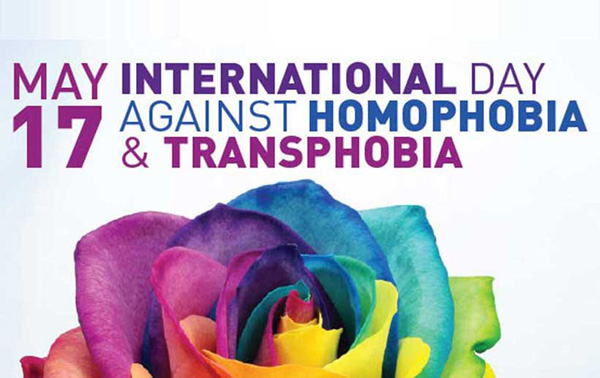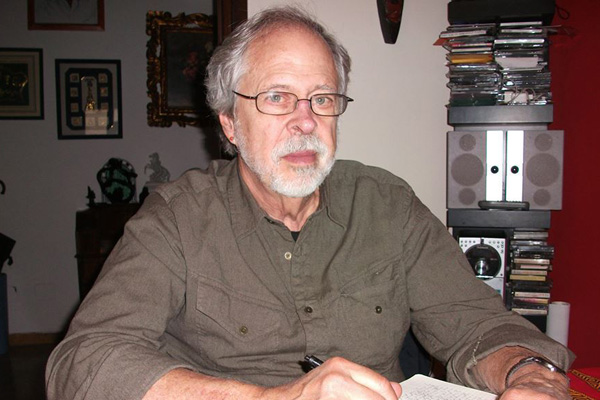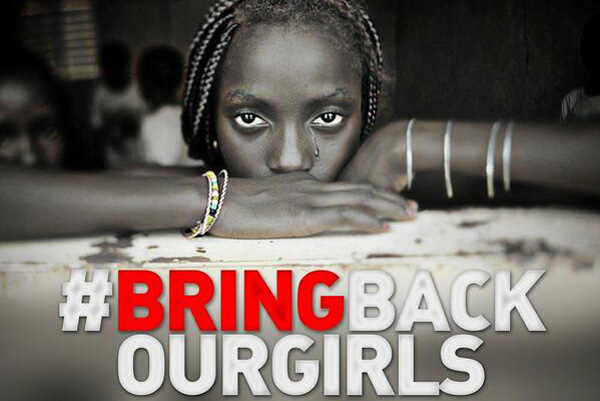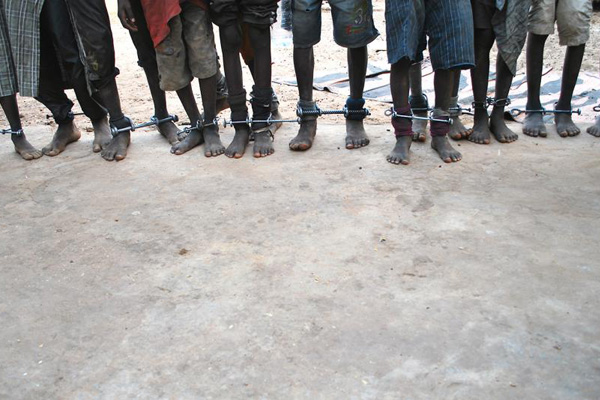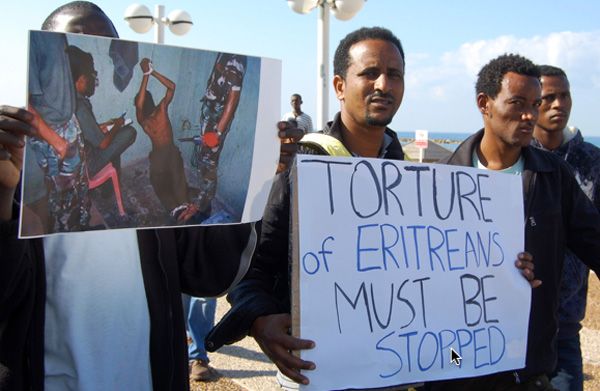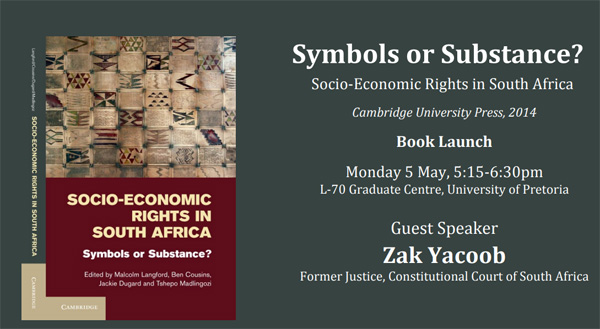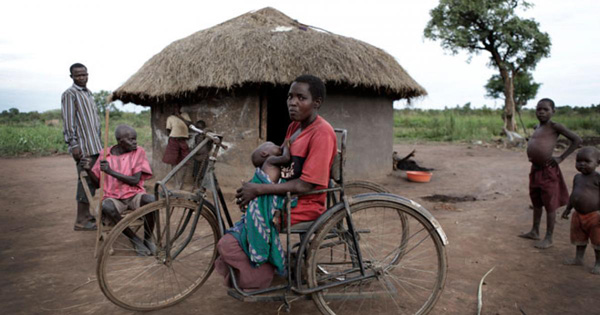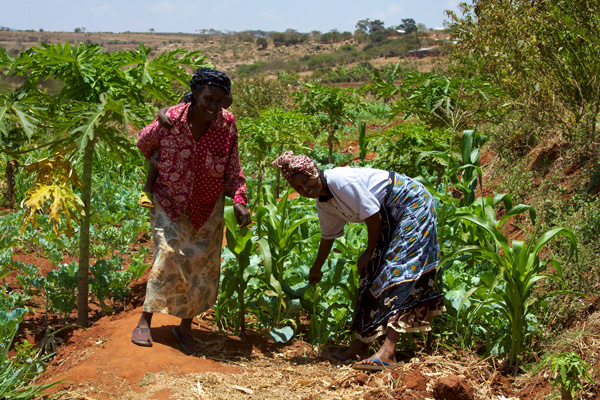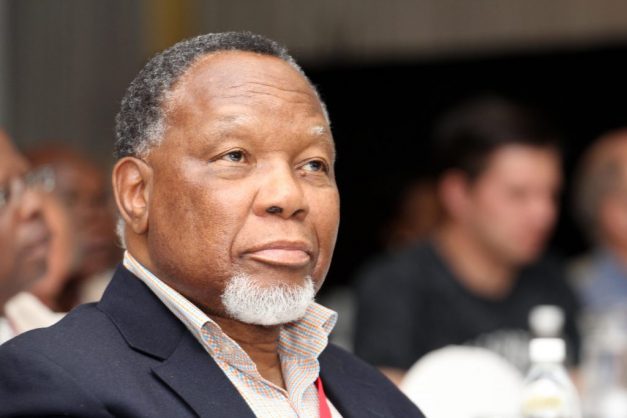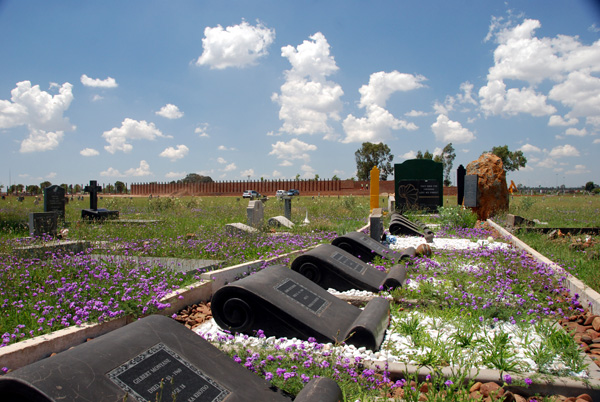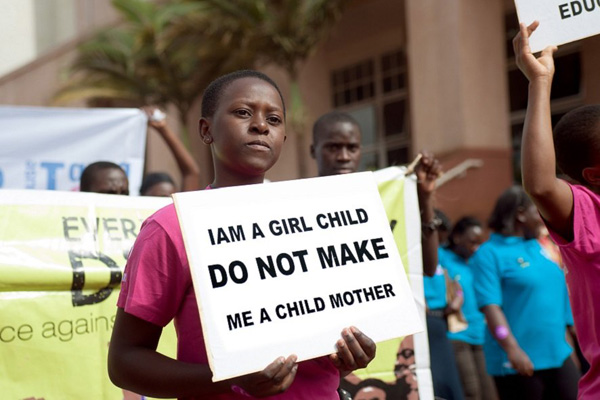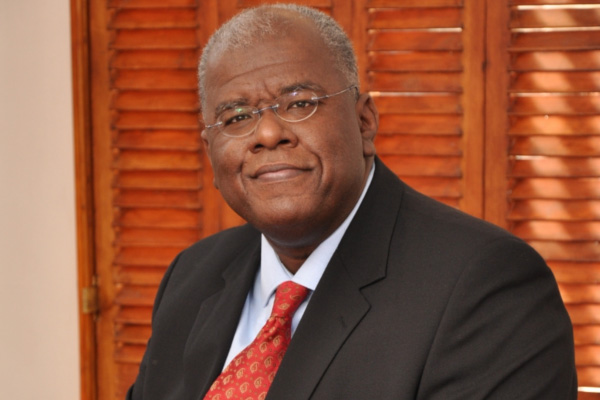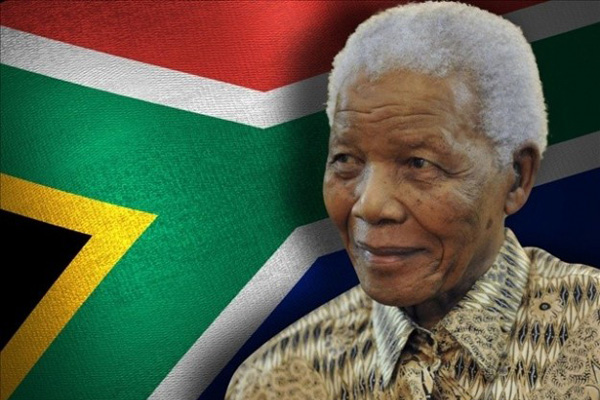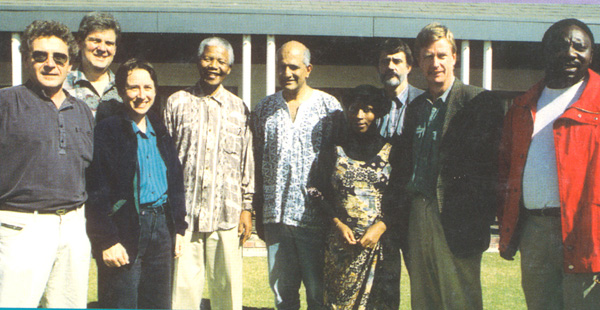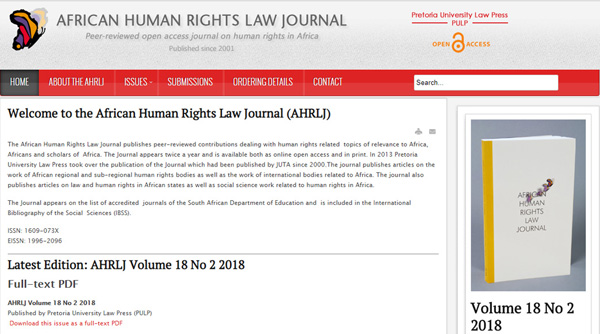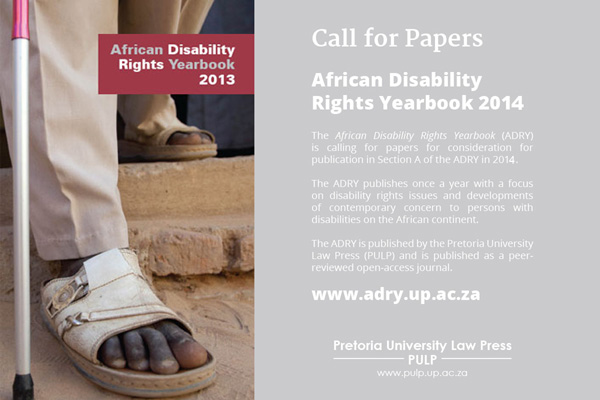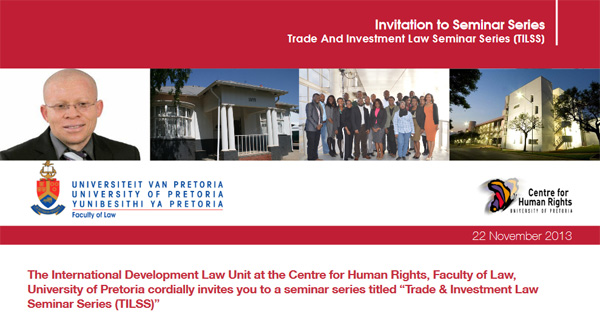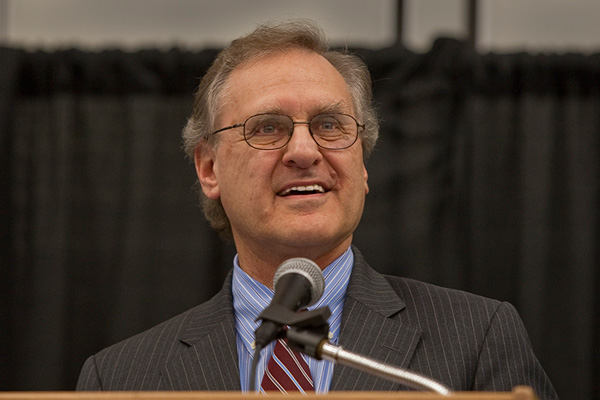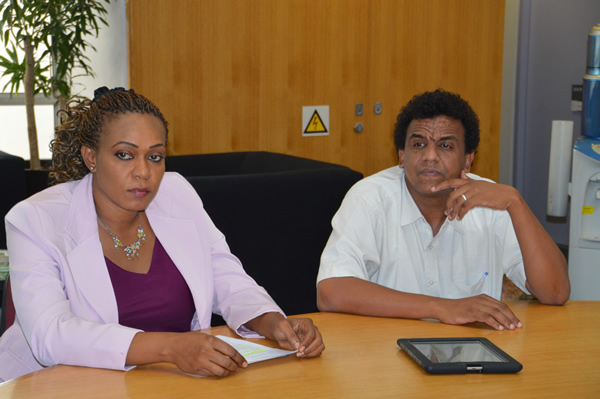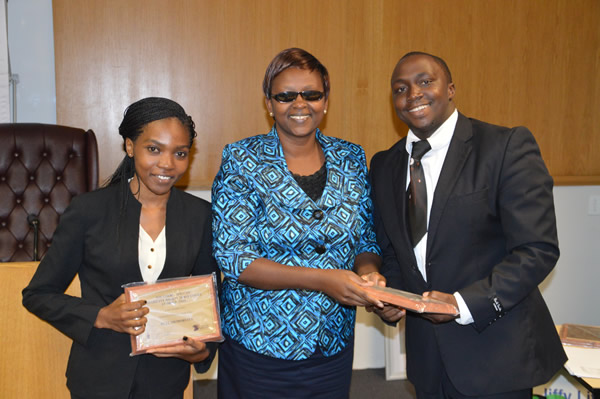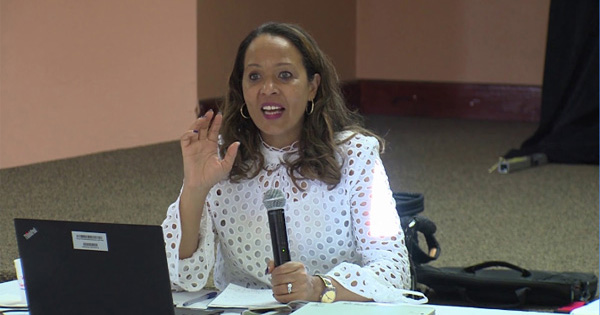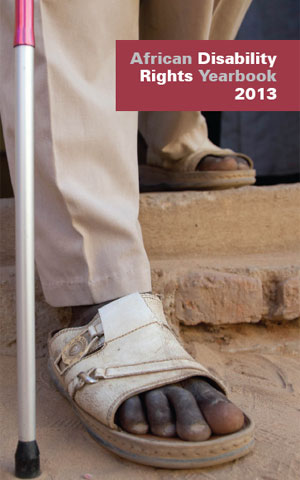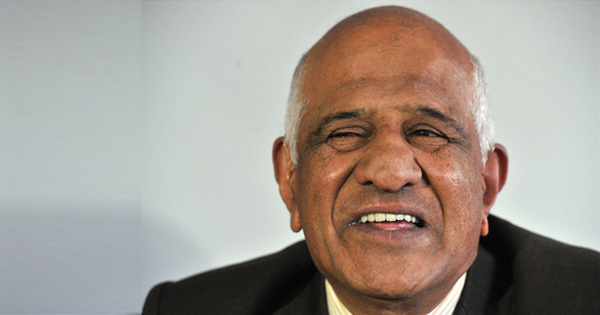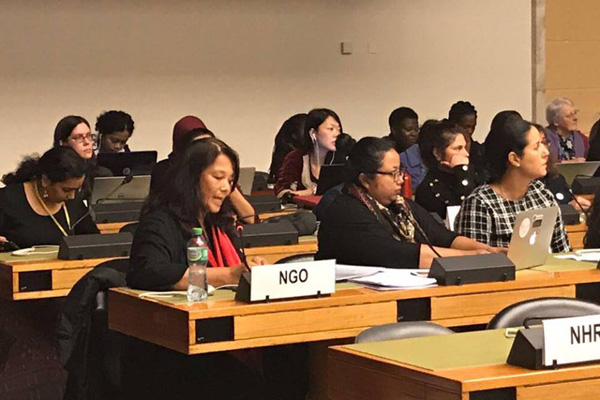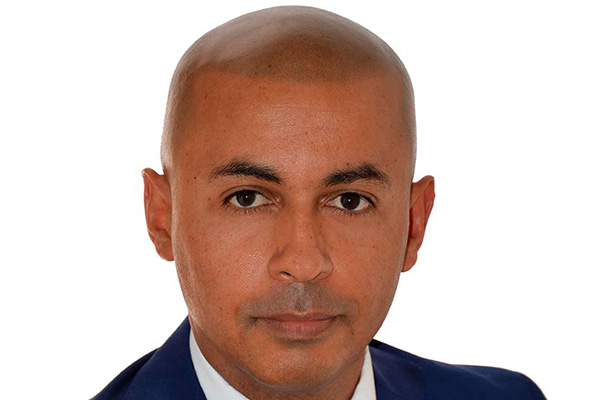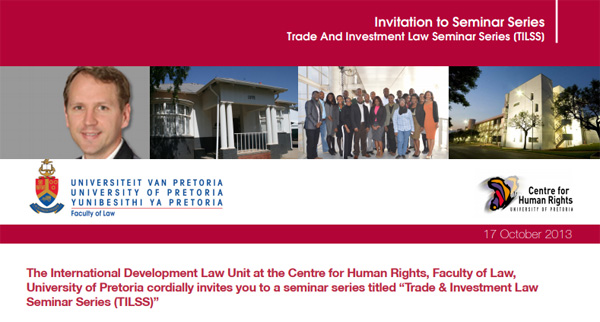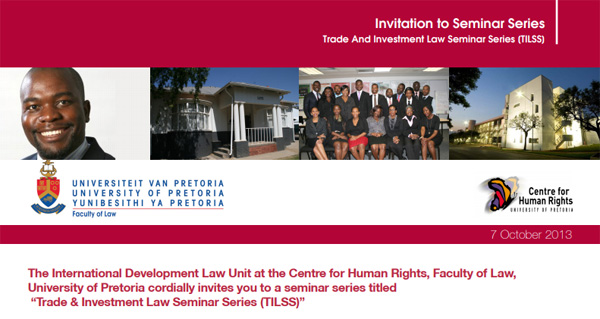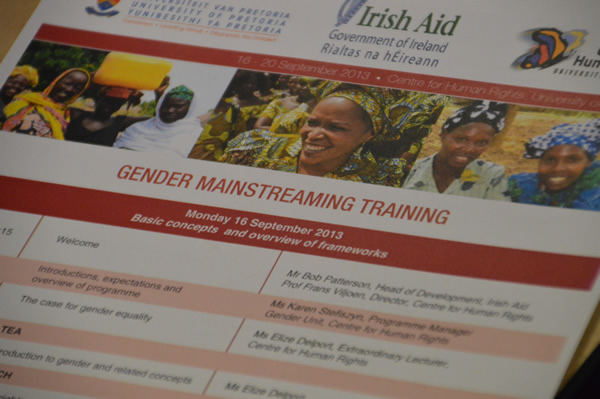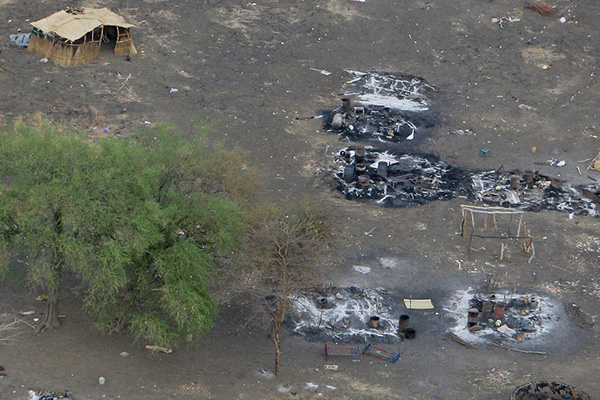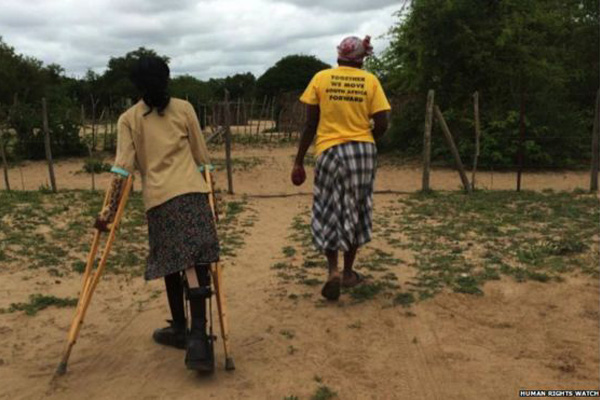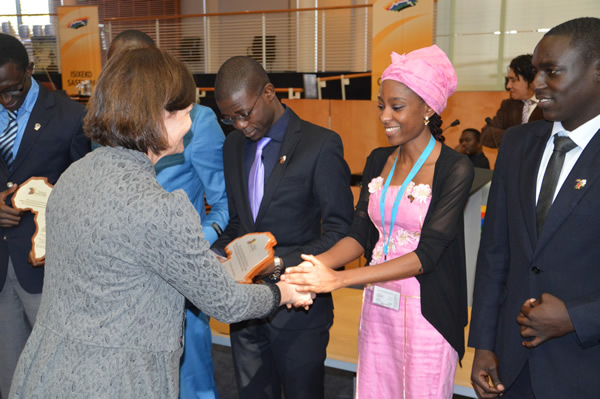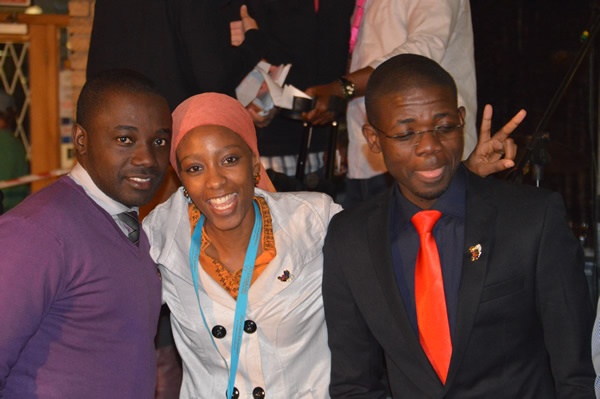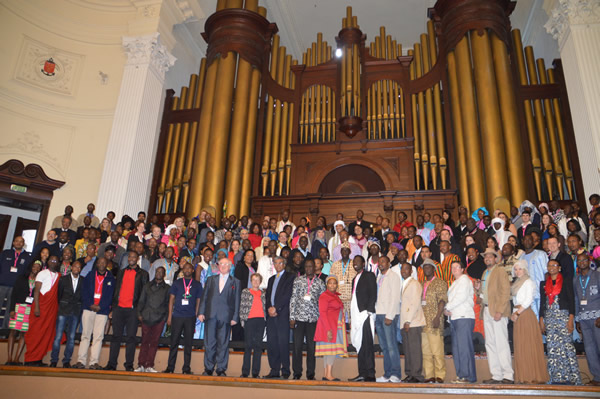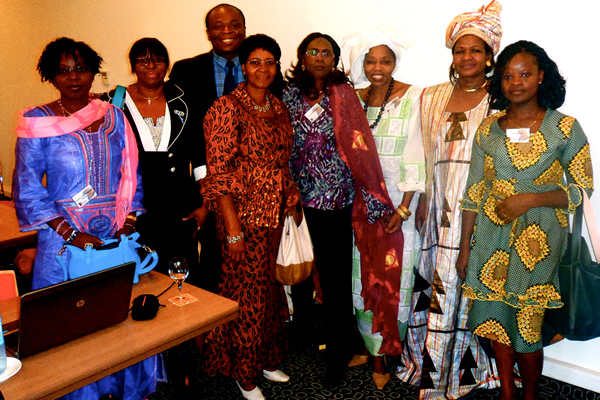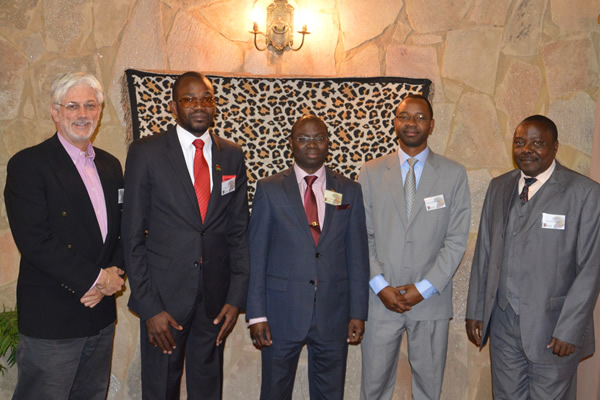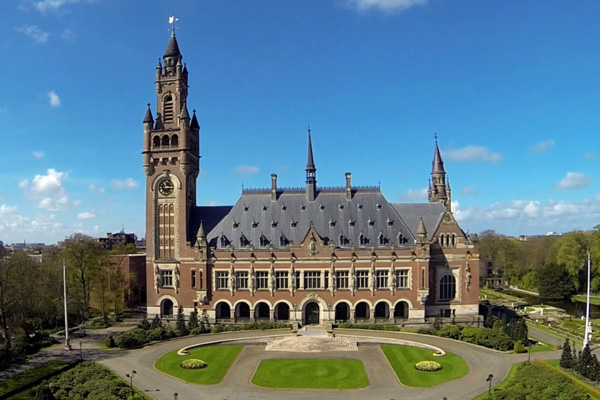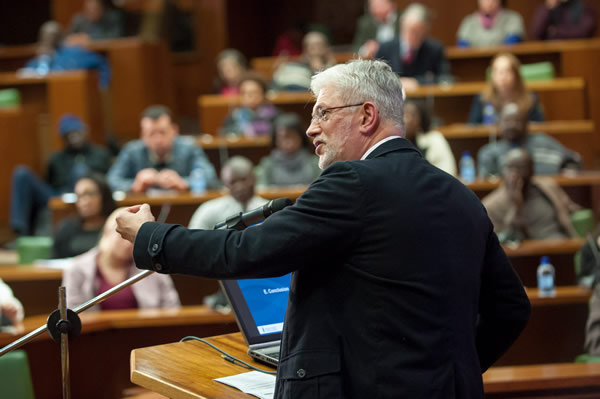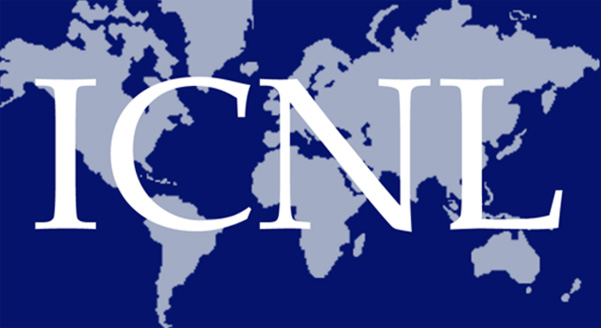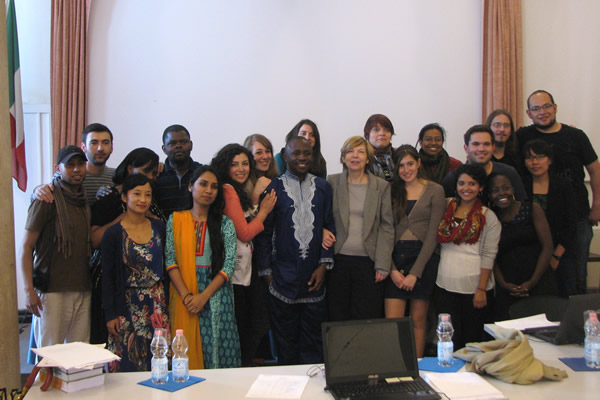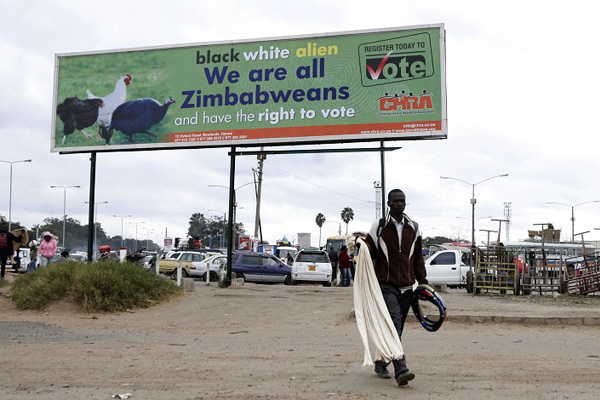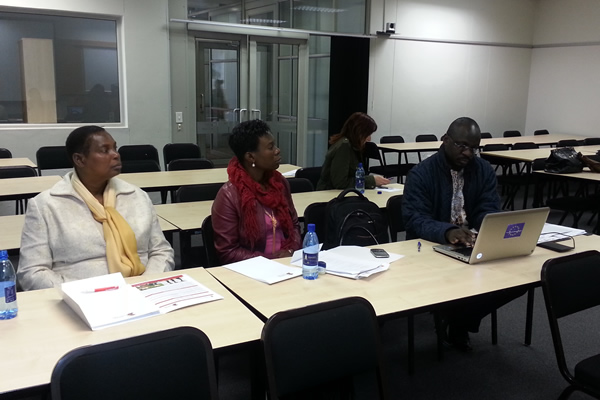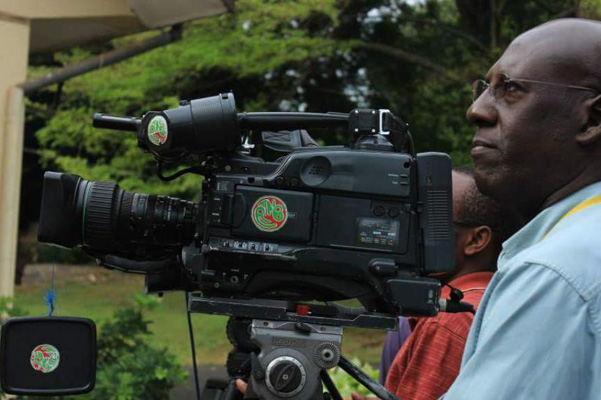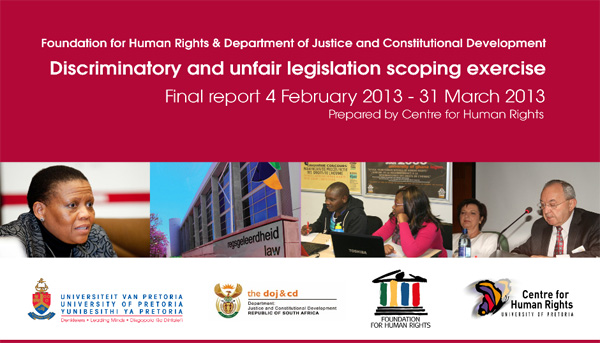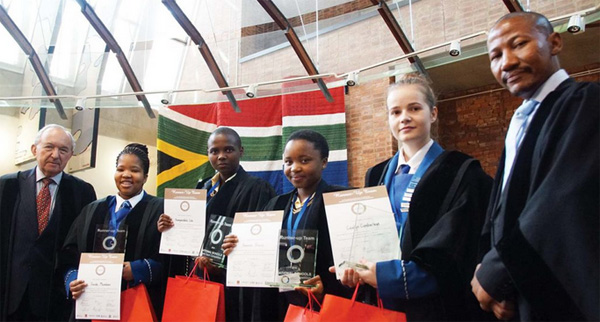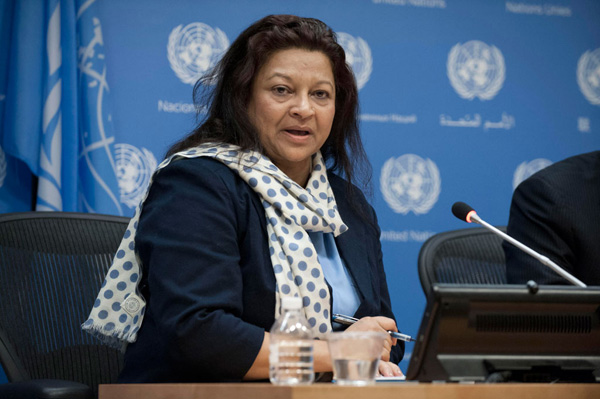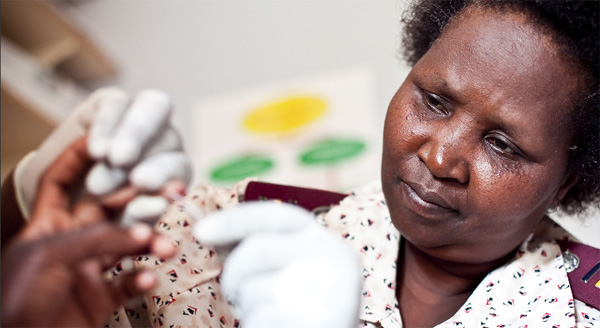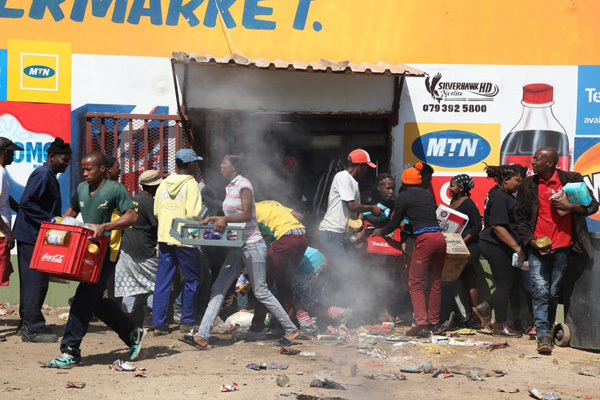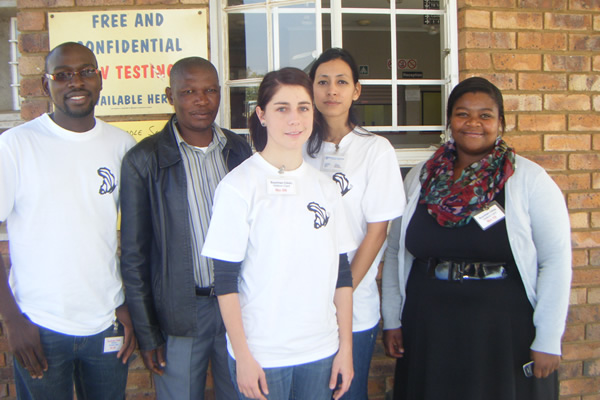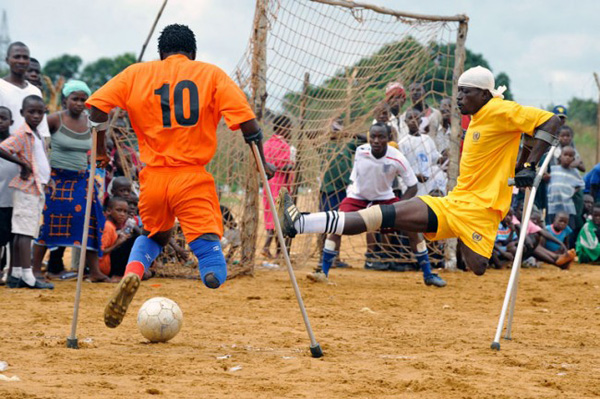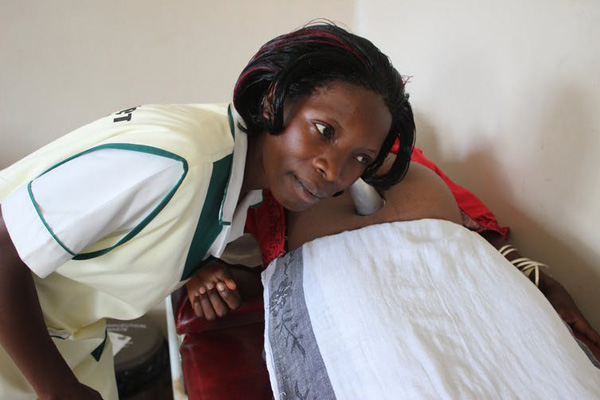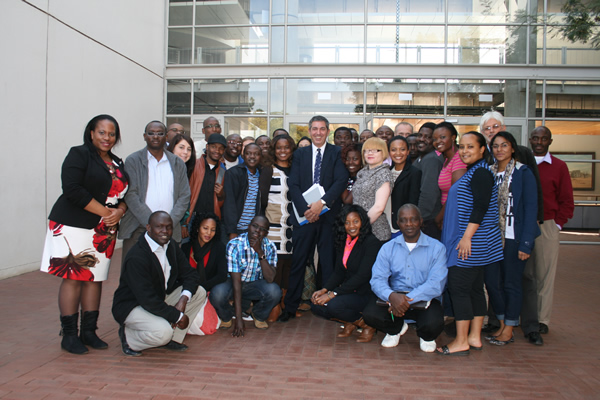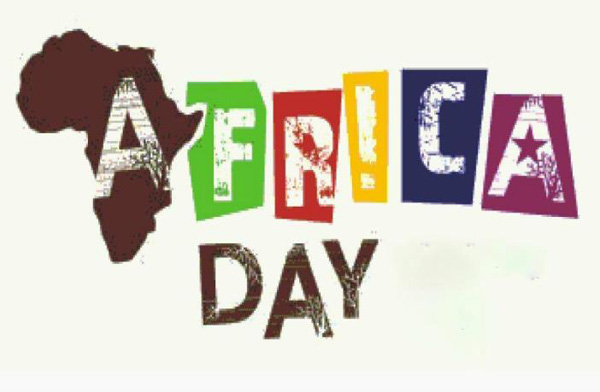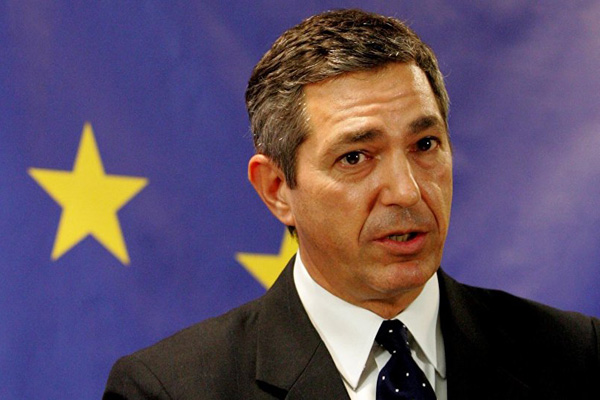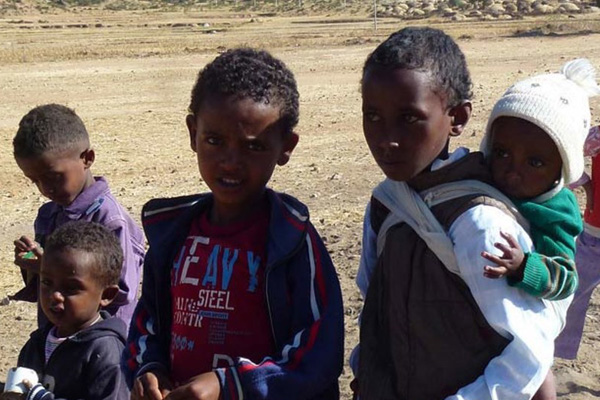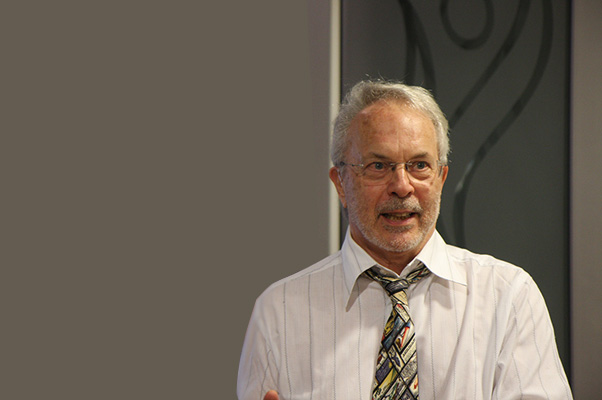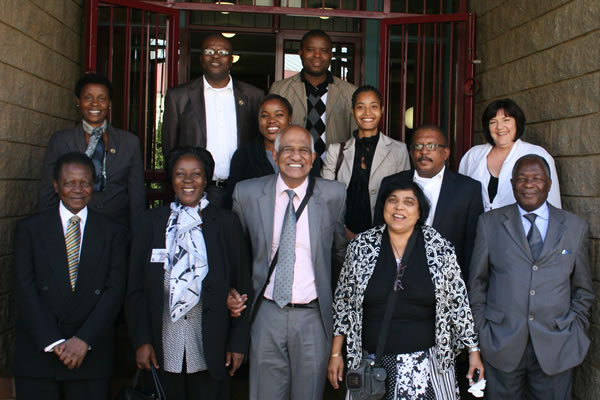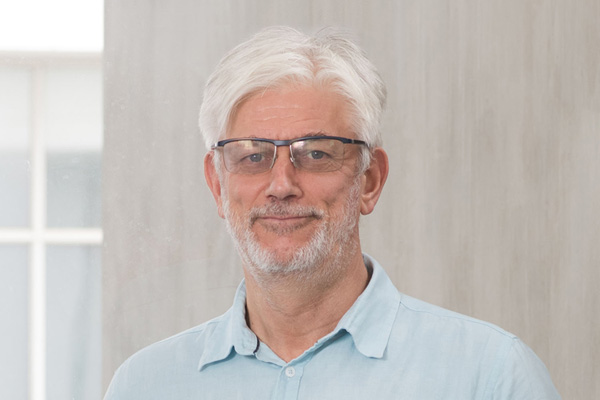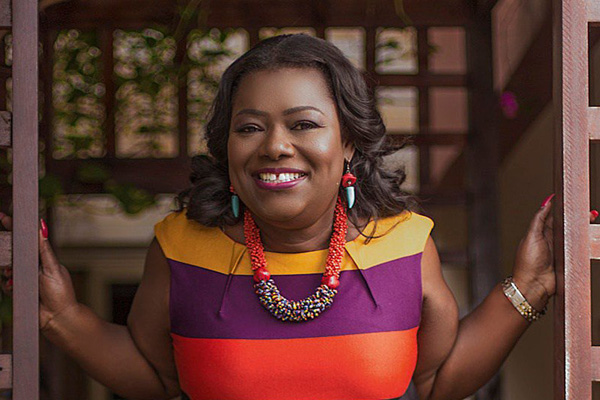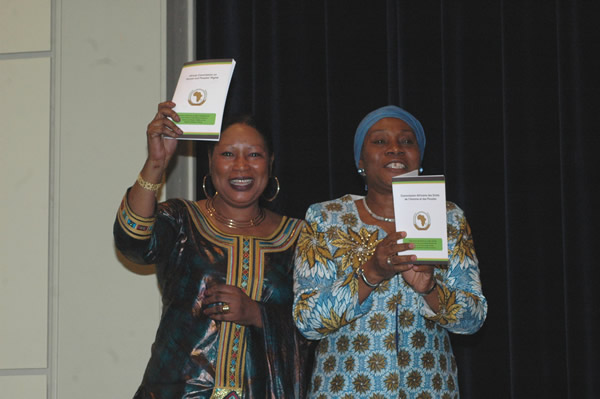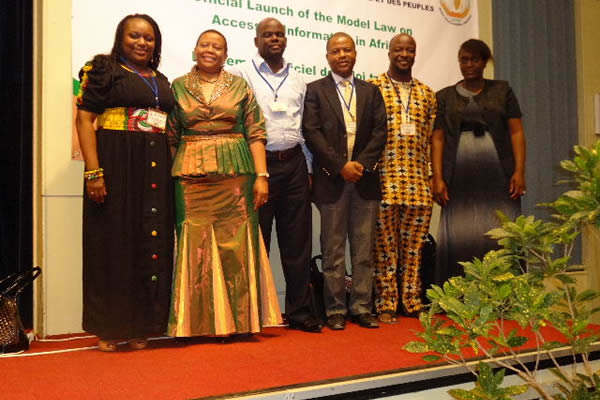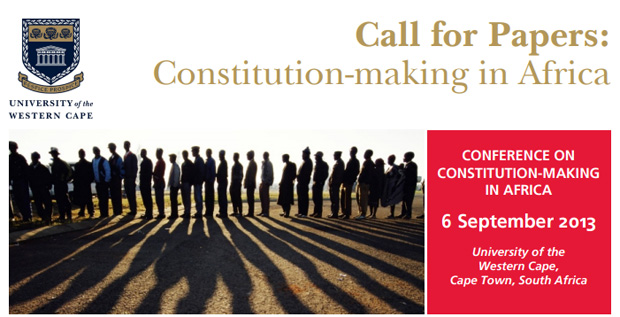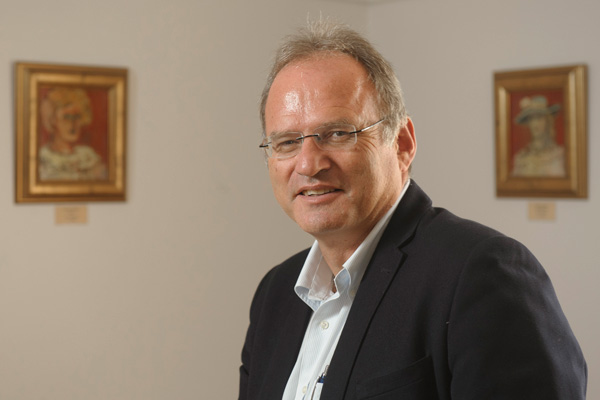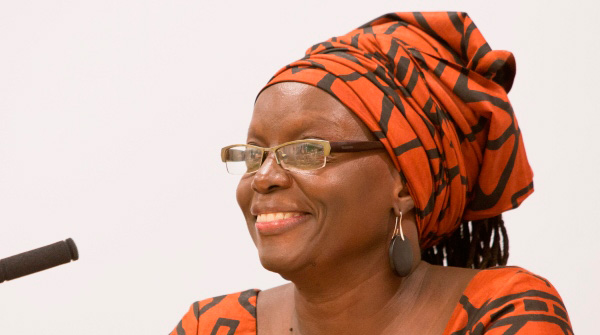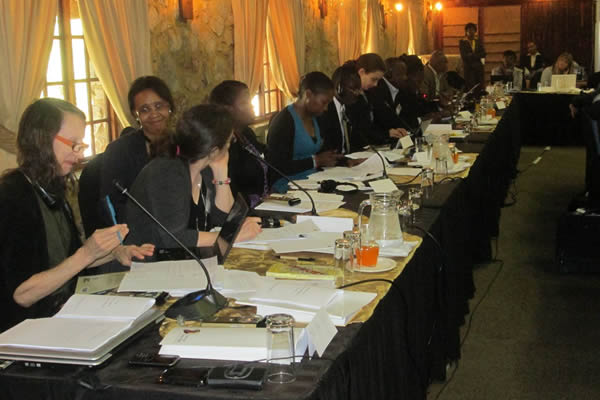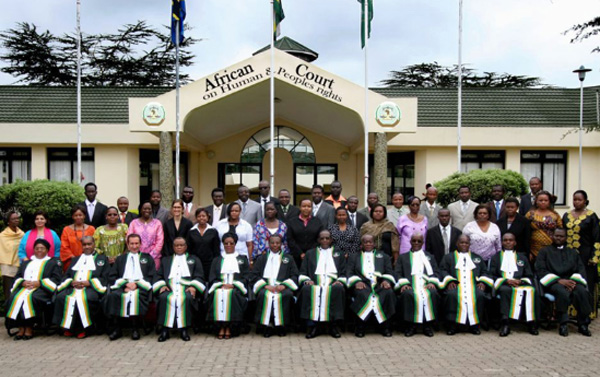- Details
An Experts’ Round Table on a proposed ‘Protocol to the African Charter on Human and Peoples’ Rights on the Rights of Persons with Disabilities in Africa’ was held at the Centre for Human Rights, University of Pretoria, on 21 and 22 of August 2014.
The Round Table is part of a consultative process, informing the elaboration of an African-specific treaty on the rights of persons with disabilities. The threshold question about the desirability and feasibility of adopting such a treaty with the African Union was also considered against the background of the fact that the UN in 2006 adopted the UN Convention on the Rights of Persons with Disabilities (CRPD), 36 AU member states have become party to the CRPD.
The meeting was organised by the Centre for Human Rights and the Africa Disability Alliance (ADA), with participation of representatives from the African Union, relevant ministries, continental and sub-regional organizations of persons with disabilities, leaders of the disability movement from various African countries, parliamentarians, experts and researchers on disability as well as regional and international organisations. A total of some 50 participants from all over the continent participated in the discussion.
- Details
At the 26th Session of the United Nations Human Rights Council in June 2014, Dr Sabelo Gumedze, an alumnus of the Master’s Programme in Human Rights and Democratisation in Africa, was appointed as a member of the United Nations Working Group of Experts on People of African Descent.
The Master’s Programme proudly presented by the Centre for Human Rights has 401 professionals from 36 African countries, Spain and the United States of America. Graduates of the Alumni Association have over the years been involved in human rights advocacy on the continent and beyond. The alumni network has become visible throughout the human rights milieu in Africa with alumni working in the academia, civil society organisations, national and inter-governmental institutions at the sub-regional, regional and global level. Dr Sabelo Gumedze belongs to the alumni association.
- Details
The Centre for Human Rights would like to congratulate Prof Michelo Hansungule on being elected as a Commissioner on theInternational Commission of Jurists (ICJ). Prof Hansungule will be serving his second term as Commissioner following his election first in 2009 and then re-election in 2014.
The ICJ is composed of 60 eminent judges and lawyers from all regions of the world, and aims to promote and protect human rights through the Rule of Law, by using its unique legal expertise to develop and strengthen national and international justice systems.
- Details
Advocacy Mission of the African Committee of Experts on the Rights and Welfare of the Child (ACERWC) on the situation of children in South Sudan (03-09 August, 2014)
Juba, 08 August 2014. Following the Resolution on the situation of children in South Sudan and Central African Republic adopted during its 23rd Ordinary Session (16 April, 2014), the African Committee of Experts on the Rights and Welfare of the Child (ACERWC) expressed its concerns on the humanitarian challenges hindering the protection and well-being of children in the two countries;
Recalling the Statement issued by the African Union Peace and Security Council (AU-PSC) on its 434th Session, the ACERWC decided to assess the situation of children in South Sudan with a view of strengthening its efforts to promote the welfare of children in Africa;
The ACERWC accordingly, conducted an advocacy mission to assess the situation of children affected by the conflict in South Sudan from 03 - 09 August, 2014, in accordance to its mandate to promote and protect the rights of children pursuant to the African Charter on the Rights and welfare of the Child (ACRWC).
- Details
The advanced short course on The Role of Men & Boys in Achieving Gender Equality is currently in progress. The course runs from the 4 to 8 August 2014 at the Centre for Human Rights, University of Pretoria. The course is presented by Sonke Gender Justice Network in partnership with the Centre for the study of AIDS and the Centre for Human Rights.
With over 30 participants drawn mostly from across Africa and expert facilitators in the field of gender justice, this year’s programme focuses on very germane issues which include: the challenges and opportunities of engaging men and boys in gender transformation in Africa; feminist critique to some approaches and interventions for engaging men and boys for gender equality, amongst other stimulating discussions.
Prof Thandabantu Nhlapo (Deputy Vice Chancellor, University of Cape Town) presented an interesting and engaging topic titled ‘Culture, tradition, religion and women’s human rights in Africa.’ He most brilliantly un-packed the dynamics around culture, identity, historical order and belief systems. Prof Nhlapo identified and interrogated the following components - gatekeepers (traditional leaders), contestations, dynamism and voluntariness as key features of culture.
- Details
The University of Pretoria’s Centre for Human Rights is delighted to announce the signature of a funding contract with the Norwegian Embassy in Pretoria valued at NOK 11 million.
Spread over three years – from 2014 to 2016 – the grant is intended to help strengthen institutions in Africa dealing with governance, the rule of law and human rights in general.
- Details
The Centre for Human Rights, University of Pretoria in partnership with the US Embassy in Pretoria invites you to an LGBTI Forum
on Partnering with Straight Allies for Safe Schools and Communities
Guest speaker: Jody Huckaby (Executive Director of PFLAG)
Date: Friday 15 August 2014
Time: 12:00 for 13:30
Venue: Centre for Human Rights Classroom, Room 2-2.1, Law Building, University of Pretoria (Hatfield Campus)
A light lunch will be served
RSVP: carole.viljoen@up.ac.za by 13 August 2014
- Details
The African Commission for Human and Peoples' Rights adopted a Resolution on Freedom of Expression in Swaziland at its 16th Extraordinary Session held from 20 to 29 July 2014, in Kigali, Republic of Rwanda.
- Details
The Centre for Human Rights is proud to announce that Adebayo Okeowo, an LLM student on the Human Rights and Democratisation in Africa programme recently won the first prize in the European Inter-University Centre for Human Rights (EIUC) Human Rights Global Campus Photo Competition. This annual amateur photography competition is open to current students and Alumni of the Regional Masters Programmes in Human Rights and Democratisation.
Photographs submitted should illustrate the efforts to realise human rights and allow viewers to creatively reflect on ways forward. This year the theme of the competition focused on “Migrants and community action” and the aim is to raise awareness on migrants’ rights and cooperation between people by demonstrating how collaboration, participation and trust can build and strengthen the community.
- Details
The Centre for Human Rights recently launched a Gender Audit Tool for gender inequality at higher education institutions in Africa. The tool, developed with funding from the Norwegian Ministry of Foreign Affairs, is designed to introspectively investigate the state of gender (in) equality at higher education institutions across Africa with a view to fostering greater gender parity.
The aim of this tool is to guide transformation and gender mainstreaming at the University of Pretoria, and should form part of the strategic plans of all departments and faculties, said Prof Frans Viljoen, the Director of the Centre for Human Rights.
The launch took the form of a panel discussion and reflected on the value of tools such as the one developed by the Centre. In opening, Ms Patience Mushungwa, Executive Director for Human Capital and Management at the University of Pretoria, expressed her appreciation at the development of the tool in light of the recent institutional culture survey. She reiterated the need for a deeper introspection of the true state of inequality at UP and other higher education institutions as the mere reliance on numbers is not sufficient to indicate true transformation.
- Details
The Centre for Human Rights, Faculty of Law, University of Pretoria, learnt with great disappointment that Thulani Maseko and Bheki Makhubu have been sentenced to terms of two years’ imprisonment each, without the option of a fine. The magazine and published were fined E100 000 (USD10 000). These sentences confirmed our worst fears. We therefore reiterate our call to the South African government to take diplomatic and other steps to exert pressure on the government of Swaziland to release Thulani and Bheki. We further urge the government to engage with the Swaziland government about its encroachment of free expression.
- Details
An advanced short course on Children's Rights in Africa is currently underway at the Centre for Human Rights, University of Pretoria. This course, which runs from 21 to 25 July, is being presented by the Centre for Human Rights, Save the Children International, the Community Law Centre, University of the Western Cape and the Centre for Child Law, University of Pretoria.
The course brought together over 50 child rights researchers, practitioners and policy makers across Africa. The Course was facilitated by renowned African child rights experts including
- Prof Benyam Mezmur, Chairperson of the African Committee of Experts on the Rights and Welfare of the Child (ACERWC) and Vice Chairperson of the Committee on the Rights of the Child;
- Prof Julia Sloth-Nielsen, Chairperson of Children’s Rights in the Developing World, University of Leiden and Vice Chairperson of ACERWC;
- Prof Ann Skelton, UNESCO Right to Education Chair and Director Centre for Child Law,
- Prof Michelo Hansungule, Centre for Human Rights and
- Prof Frans Viljoen, Director Centre for Human Rights.
- Details
The Special Rapporteur on Freedom of Expression and Access to Information in Africa, Commissioner Pansy Tlakula, undertook an advocacy visit to Mozambique, Ghana and the Southern African Development Community (SADC) secretariat in Gaborone, Botswana. The advocacy visits were undertaken to dicuss the implementation of the Model Law on Access to Information for Africa (Model Law).
Mozambique
On 26 June 2014, the Special Rapporteur on Freedom of Expression and Access to Information in Africa, Commissioner Pansy Tlakula, undertook an advocacy visit to Maputo, Mozambique. The purpose of the visit was to meet with government officials to advocate for the speedy adoption of the Mozambican Right to Information Bill, currently before Parliament, in accordance with regional and international standards on access to information as embodied in the Model Law on Access to Information for Africa (Model Law). The Special Rapporteur was accompanied during this visit by 3 expert members of the Working Group which developed the Model Law.
- Details
On 8 and 9 July 2014, the Special Rapporteur on Freedom of Expression and Access to Information in Africa (the Special Rapporteur), Commissioner Pansy Tlakula, in collaboration with the Centre for Human Rights, Media Institute of South Africa Tanzania (MISA-Tanzania), and members of the Decriminalisation of Expression (DOX) Campaign, organised a stakeholders meeting on the decriminalisation of laws limiting Freedom of Expression, in Dar es Salaam, Tanzania.
The DOX campaign is a campaign for the repeal of laws on criminal defamation, sedition, insult and false news in Africa, led by the Special Rapporteur. The Centre for Human Rights acts as the secretariat of the campaign with members from several local, regional and international organisations working on freedom of expression.
- Details
The Centre for Human Rights (CHR), together with the United Nations Regional Office for Southern Africa (ROSA) of the OHCHR and the Centre for Applied Legal Studies (CALS), hosted a multi-stakeholder dialogue on business and human rights at the University of Pretoria on 21 July 2014.
The aim of the dialogue was to bring stakeholders together from different backgrounds and representing different sectors. The event was attended by representatives from the United Nations, government, business, civil society, academia and communities. The dialogue also served to inform the agenda of a similar multi-stakeholder engagement scheduled for 16 – 18 September 2014, to be held in Addis Ababa, Ethiopia.
- Details
![]() Download this statement
Download this statement
![]() Download the follow-up statement
Download the follow-up statement
The Centre for Human Rights, Faculty of Law, University of Pretoria, calls on the Government of South Africa to take suitable measures to exert pressure on the government of Swaziland to ensure that Thulani Maseko, a graduate of the University of Pretoria, be released from prison and not be sentenced to imprisonment.
Who is Thulani Maseko?
Thulani Maseko graduated with a Master’s degree in Human Rights from the University of Pretoria in December 2005. After graduation, he returned to Swaziland to work as a lawyer and human rights activist. He is also a senior member of Lawyers for Human Rights, Swaziland. In 2011 Thulani received the Vera Chirwa Award from the Centre for Human Rights awarded to a graduate who has made a significant difference to the protection of human rights in his or her home country.
- Details
An advanced short course on Civil Society Law in Africa is currently underway at the Centre for Human Rights, University of Pretoria. This course, which runs from 14 to 18 July, is being presented by the Centre for Human Rights and the International Center For Not-For-Profit Law, Washington DC in the United States.
The objectives of the course are to strengthen capacity, in practice, to identify and analyse legal barriers to the right to freedom of association; to raise awareness of the challenges faced by civil society; and to foster efforts to respond to those threats. The course also aims to build a network of legal professionals working in the field and encourage collaborative efforts within such a network.
- Details
The Centre for Human Rights, University of Pretoria invites you to the launch of ‘Gender Equality at Higher Education Institutions in Africa: A Gender Audit Tool’
![]() Download the Gender Audit Tool
Download the Gender Audit Tool
The Centre for Human Rights (CHR) will be launching a Gender Audit Tool developed towards the realisation of gender equality at higher education institutions across Africa. This Gender Audit Tool was developed with funding from the Norwegian Ministry of Foreign Affairs and is geared towards the contemplation of greater gender equality at higher education institutions across Africa. The tool will be disseminated to CHR partner universities and other universities across Africa.
The launch will take the form of a panel discussion on the general theme of “Gender Equality in Higher Education Institutions across Africa.”
- Details
The UN Special Rapporteur on the situation of human rights in Eritrea, Ms Sheila B Keetharuth, has released her latest report detailing the most prevalent and pressing human rights violations within the country. A context of human rights violations is summarized, followed by a pinpointing of the main issues for concern, namely, the indefinite national service and arbitrary arrest and detention, including incommunicado detention and inhumane prison conditions; these systematic human rights violations have produced a refugee crisis as hundreds and thousands flee the country.
- Details
The Centre for Human Rights, University of Pretoria, applauds the United Nations Human Rights Council’s (UNHRC) decision to extend the mandate of the Special Rapporteur on the situation of human rights in Eritrea and the setting up of a landmark Commission of Inquiry (COI) on Eritrea.
Resolution (A/HRC/26/L.6) renewing the mandate and assigning the COI to investigate the human rights situation in Eritrea for a period of one year was adopted without a vote at the close of the 26th UNHRC regular session on 27 June 2014.
Prof Frans Viljoen, Director of the Centre for Human Rights, expressed the hope that “the Human Rights Council's decision would not only increase the possibility for international engagement, but also see to an actual improvement in the human rights situation in Eritrea. I congratulate the Special Rapporteur and her team of researchers at the Centre, for their dedicated work”.
- Details
On 19 June 2014, the Centre for Human Rights, in collaboration with MISA-Malawi and the Open Society Justice Initiative, held a meeting with local stakeholders on in Lilongwe, Malawi on the implementation of the project on utilising access to information for the realisation of sexual and reproductive health rights of women in Malawi. The meeting discussed the modalities for the implementation of the Plan of Action which was developed at an earlier meeting that took place on 19 and 20 March 2014 also in Lilongwe Malawi.
The initial meeting brought together a broad range of stakeholders with considerable expertise access to information and sexual and reproductive health right (SRHR) issues in Malawi, with a view to creating a shared understanding of the utility of access to information for the realization of sexual and reproductive health rights of women in Malawi.
- Details
The Centre for Human Rights, Faculty of Law, University of Pretoria invites you to a seminar on ‘Failed peacemaking in Sudan and South Sudan: Persistent and new wars 10 years after the Comprehensive Peace Agreement’
Three years after independence South Sudan is again at war. At this seminar Dr Sharath Srinivasan (University of Cambridge) will share his insights into the conflicts in Sudan and South Sudan based on his extensive research in the region for over a decade.
- Details
The LLM/MPhil in Human Rights and Democratisation in Africa is a unique programme to which 25-30 individuals from African countries are admitted. The programme is presented by the Centre for Human Rights at the Faculty of Law, University of Pretoria.
In the spirit of mutual exchange aimed at strengthening the links between the regional human rights master’s programmes, and following the positive experience of the EMA programme in this area, the African Human Rights Master’s Degree introduced an amateur photography competition on human rights and democratisation in 2009.
- Details
![]() Download this statement (English)
Download this statement (English)
![]() Download this statement (Arabic)
Download this statement (Arabic)
![]() Download this statement (Tigrinya)
Download this statement (Tigrinya)
The Unaccompanied children of Eritrea: a plea for collective responsibility
As the African continent celebrates the Day of the African Child, 16 June 2014, the Centre for Human Rights (CHR), University of Pretoria, focuses on the plight of unaccompanied children fleeing from a militarised society that is destabilising the social fabric of the country. Thousands of unaccompanied minors take risky journeys across the borders into Ethiopia, Sudan and further afield.
- Details
On 4 and 5 June 2014, the Centre for Human Rights, in collaboration with the Department of Political Affairs of the African Union Commission, held an experts meeting on the draft state reporting guidelines for the African Charter on Democracy, Elections and Governance (Democracy Charter) in Pretoria, South Africa.
The meeting brought together a broad range of stakeholders with considerable expertise on human rights, democracy and election issues, to review the current draft State Reporting Guidelines, with a view to facilitating the domestication and implementation of the Democracy Charter by Member States. Participants included government officials, National Human Rights Institutions (NHRIs), Electoral Management Bodies (EMBs), Regional Economic Communities, (RECs), academics and civil society organisations focusing on issues of democracy, human rights and governance from across the continent.
- Details
![]() Download this statement
Download this statement
![]() Download Mr Thulani Maseko's statement made in court on 5 June 2014
Download Mr Thulani Maseko's statement made in court on 5 June 2014
The Centre for Human Rights expresses dismay at the arrest of MessrsThulani Maseko and Bheki Makhubu, by the Royal Swaziland Police Service on 17 and 18 March 2014, and their continued detention. Mr Maseko is a Swazi human rights lawyer and graduate of the Centre’s Master’s programme in Human Rights and Democratisation in Africa; Mr Bheki Makhubu is the editor of the New Nation magazine.
- Details
The Centre for Human Rights, University of Pretoria in association with the Johannesburg Holocaust & Genocide Centre invites you to a public screening of ‘PARAGRAPH 175’
During the Nazi regime, there was widespread persecution of homosexual men and women. Thousands were murdered in concentration camps. Paragraph 175 – a powerful and disturbing documentary, narrated by Rupert Everett – presents for the first time the largely untold testimonies of those who survived.
Venue: Law Auditorium(1-54), Law Building , UP
Date: Friday, 6 June 2014
Time: 12:00 - 14:00
Entrance is free. No RSVP necessary.
- Details
From 12 - 16 May 2014 three students from the LLM/MPhil (Human Rights and Democratisation in Africa) at the Centre for Human Rights, University of Pretoria, participated in the 2nd edition of the Global Classroom held in Venice, Italy.
The Global Classroom (GC) falls under the auspices of the Global Campus programme involving the University of Sydney, University of Pretoria, University of San Martin, Buenos Aires, Yerevan State University, University of Sarajevo and the European Inter-University Centre for Human Rights and Democratisation.
- Details
The African Commission on Human and Peoples' Rights adopts first resolution ever on sexual orientation as it condemns violence against persons on basis of sexual orientation
- Details
On the occasion of this year’s International Day Against Homophobia and Transphobia (IDAHOT), on Saturday 17 May 2014, the Centre for Human Rights is pleased to host the photographic exhibition In Whom Can I Still Trust?. The exhibition aims to highlight the progress made, and challenges faced, in ensuring the protection of sexual minorities in South Africa.
The exhibition was officially opened a on Friday 16 May in a ceremony in the Faculty of Law, at the University of Pretoria. The opening included a message from the Johannesburg Holocaust and Genocide Centre, delivered by Ms Janine Cohen; a speech by Mr Richard Freedman, Director of the South African Holocaust and Genocide Foundation; and a welcome message from Prof Frans Viljoen, Director of the Centre for Human Rights. An inspiring and uplifting keynote address was delievered the famous South African human rights activist and social commentator Sisonke Msimang.
- Details
Prof Dan Connell, a visiting scholar from Boston University’s African Studies Centre and senior lecturer in journalism and African Politics at Simmons College, Boston, Massachusetts, has raised concern about the forced migration and human trafficking situation in Eritrea. He highlighted the grave situation in Eritrea during an open lecture titled ‘Eritreans at risk: Refugees, migrants or migrating refugees?’ hosted by the Centre for Human Rights at the University of Pretoria as part of its ongoing efforts to raise awareness on the human rights situation in Eritrea. The lecture was aimed at situating the refugee and migrant problem in Eritrea in the global discourse on causes, consequences and responses to forced migration and human trafficking.
Prof. Connell has written seven books and numerous articles on the human rights situation in Eritrea since 1976.
- Details
On the night of 14 April 2014, more than 200 female students were kidnapped from the Government Secondary School in the town of Chibok in Borno State, Nigeria.
The kidnappings were claimed by Boko Haram, an Islamic Jihadist and Takfiri terrorist organisation based in northeast Nigeria.
Social media has played a pivotal role in forcing the issue onto the agenda of our world leaders. Hundreds of thousands of people have posted images of themselves holding pieces of paper with the #BringBackOurGirls hashtag written on it on Facebook, Instagram and Twitter.
The 2014 LLM/MPhil (Human Rights and Democratisation in Africa) class has added their voice to the #BringBackOurGirls campaign by producing a Pan-African video in support of the girls, their parents, families and the Nigerian people.
- Details
Statement by the Centre for Human Rights, Faculty of Law, University of Pretoria to the African Commission on Human and Peoples’ Rights, at its 55th ordinary session, Luanda, Angola, 29 April 2014, on the situation of human rights in Africa
- Details
In 2012 the Centre for Human Rights submitted a communication to the African Committee of Experts on the Rights and Welfare of the Child (African Committee) which was co-authored with la Rencontre Africaine pour la Défense des Droits de l’Homme (RADDHO), a NGO based in Dakar, Senegal.
On 18 April 2013, the Committee declared the Communication admissible and it was heard on its merits on 14 April 2014 where both the representatives of the Applicant and the Respondent were present.
![]() Summary of the proceedings concerning the talibés case
Summary of the proceedings concerning the talibés case
![]() Response from the State of Senegal
Response from the State of Senegal
- Details
The Centre for Human Rights, Faculty of Law, University of Pretoria invites you to a public lecture ‘Eritreans at Risk: Refugees, migrants or migrating refugees?’
Thousands of Eritreans have fled a repressive dictatorship since 2001, making their small northeast African nation (population 4-5 million) one of the largest per capita producers of asylum seekers in the world. Many languish in desert camps. Others have been kidnapped, tortured and ransomed—or killed—in the Sinai; left to die in the Sahara; or drowned in the Mediterranean. Still others have been attacked as foreigners in South Africa, threatened with mass detention in Israel, or refused entry under draconian “terrorism bars” in North America. This lecture draws on interviews in refugee camps and communities in Ethiopia, Sudan, Egypt (Sinai) and Israel to put a human face on this ongoing crisis, sketch out its main corridors, and situate it within the global debates on causes, consequences and responses to forced migration and human trafficking.
- Details
The Centre for Human Rights, University of Pretoria in association with the Johannesburg Holocaust & Genocide Centre invites you to the opening of the exhibition ‘In Whom Can I Still Trust?’
To commemorate the International Day Against Homophobia (IDAHO) on 17 May, the Centre for Human Rights and the Johannesburg Holocaust & Genocide Centre invites you to the opening of the renowned exhibition, ‘In Whom Can I Still Trust?’, which explores the Nazi persecution of sexual minorities in Europe.
The keynote address will be delivered by Sisonke Msimang, human rights activist and social commentator.
- Details
The Centre for Human Rights at the Faculty of Law, University of Pretoria, invites you to the book launch of Socio‐Economic Rights in South: Symbols or Substance? The publication is edited by Malcolm Langford, Ben Cousins, Jackie Dugard and Tshepo Madlingozi.
Former Justice of the Constitutional Court of South Africa, Zak Jacoob will be the guest speaker at the book launch. The book launch forms part of the Judicial Enforcement of Socieo-Economic Rights in South Africa course, presented by the Advanced Human Rights Courses at the Centre for Human Rights.
- Details
The Centre for Human Rights invites abstracts for a conference on disability rights with a focus on the effective implementation of the rights of women with disabilities in Africa. The conference will be held at the Centre for Human Rights on Tuesday 4 and Wednesday 5 November 2014 in Pretoria, South Africa. The conference will also coincide with launch of the second issue of the African Disability Rights Yearbook, the first issue having been launched in 2013. It is anticipated that papers presented at this conference will be reworked by the authors and submitted for consideration for publication in the 2015 issue of African Disability Rights Yearbook.
- Details
The Solidarity for African Women’s Rights Coalition (SOAWR), an initiative of 43 organizations working across 23 countries in Africa to promote and protect women’s rights in Africa, strongly condemns discriminatory provisions of Kenya’s 2013 Matrimonial Property Act and the Marriage Bill (pending presidential assent).
![]() Download the SOAWR statement (English)
Download the SOAWR statement (English)
![]() Download the SOAWR statement (Francais)
Download the SOAWR statement (Francais)
The Matrimonial Property Act, which was duly gazetted into law on 10th January 2014, is discriminatory and a retrogressive step for women's rights to land and property in Kenya. The Act, in brief, defines matrimonial property as only property that is jointly owned by the spouse, and disallows women the right to marital property upon the death or divorce of their spouse by requiring them to prove their contribution to the acquisition of the property during the marriage.
- Details
South Africa’s Deputy President, Mr Kgalema Motlanthe, delivered a public lecture at the Centre for Human Rights. The event was organised by the Centre for Human Rights to mark 15 years of the Master’s degree programme in Human Rights and Democratisation in Africa. The programme is presented by the Centre for Human Rights and 13 other African universities. At the ceremony, the Centre for Human Rights also remembered an alumnus of the programme Mr Julius Osega who passed away in 2006 while on a peacekeeping mission in Darfur, Sudan. More than 200 guests attended the public lecture.
![]() Download Mr Kgalema Motlanthe's lecture
Download Mr Kgalema Motlanthe's lecture
The guests included ambassadors, members of the diplomatic corps, funders of the programme, senior management of the University of Pretoria and members of the wider community of the University of Pretoria.
- Details
Human Rights Day is an opportunity for stock-taking and an occasion for celebration. In the run-up to the 2014 parliamentary elections, we should not lose sight of the very fact that all South Africans are now able to vote in a legitimate process under circumstances that are largely free of violence and intimidation. The Public Protector’s recent report on Nkandla also serves as a reminder that our democracy has brought into being strong institutions, which support the transformation of our society from one based on unquestionable adherence to executive and legislative authority to one based on a culture of justification.
- Details
The Centre for Human Rights hosted a meeting of experts on child marriage in Africa on the 5th and 6th of March 2014. This meeting forms part of the child marriage project which seeks to investigate the prevalence of this phenomenon in African countries, and to give recommendations on best practices that can be employed to curb it. This project supports the mandate of the Special Rapporteur on the Rights of Women in Africa (SRRWA) especially to follow up on the implementation of the Protocol on the Rights of Women in Africa by state parties, notably by preparing reports on the situation of women’s rights in Africa and propose recommendations to be adopted by the Commission. The Special Rapporteur is further mandated to carry out comparative studies on the situation of the rights of women in various countries of Africa.
- Details
On 11 February 2014, Professor Jonathan Jansen, the Vice Principal and Rector of University of the Free State, addressed a gathering to welcome 26 African students from all over the continent who are at the University of Pretoria to pursue a Master’s degree in Human Rights and Democratisation in Africa. The Master’s programme to which the students are admitted is presented by 13 African universities under the stewardship of the Centre for Human Rights (CHR), Faculty of Law, University of Pretoria. The event was attended by donors, members of the diplomatic corps, senior management of the University of Pretoria, students and members of the public.
In his speech titled “Nearness as an approach to solving human wrongs,” Professor Jansen spoke about the key qualities to which leaders should aspire. He noted that leadership is often mistaken for toughness. This misconceived idea of leadership is pervasive on the African continent and creates more problems than it solves.
- Details
On 7 May 1971 – in the windswept sandstorm region of the Sahel, a male child was born in Southern Burkina Faso in the town of Ouessa to a farmer whose selfless character was to be a notable virtue in his son. Though born to a humble beginning, this child in his early years had the resilience of a baobab. Against the ebbs and flows of the semi-arid region of his birth, he would go with his father to their farm to cultivate crops. One day, as he helped his father with tomato plants, his father told him that whatever you do, do it to the fullest. Though it had seemed like a statement that would pass with the wind, this child took it to heart. Through seasons of drought and moments of rain as this child matured into a man, those words sunk in his heart..
During his years as an undergraduate student at the University of Ouagadougou, he was part of a youth wing of the national movement for human rights. He graduated in 1997 and in 1999 became a public law jurist in the Parliament of Burkina Faso. As a jurist, he was involved in various significant activities, one of which was: monitoring the compliance of draft bills with the government’s international obligations. But as a man who knew to do things to the fullest, his perspective was always wider than the enclave of the sand-swept country of his birth. He wanted to do more, to press for change beyond his country. So in 2003, he applied for the Masters in Human Rights and Democratisation in Africa.
It is no mean fit for someone from a francophone country with full education in French to aspire unto one of the most demanding Masters Programme. But this man did and with resilience, he shone. Being the first and only student from Burkina Faso, his courage in coming in spite of the challenges ahead of him was remarkable. While everyone else took away with them a degree, he took away twice as much. He took with him fluency in a second language that flung open the doors of his life.
When he graduated in 2004, he was prepared to be a leading voice of change and having been well equipped to do so, he began with resilience. In 2005, he joined the United Nations – an institution often criticised for crooning the tunes of good governance but not doing enough. While it is easy to overlook people working in this system unless they are at the very top, one cannot help but notice this man who through hardship as made a difference. He has shown that he is not just a clog in the wheel but someone determined to make a personal contribution. Someone prepared to make a lasting difference. Someone prepared to do things to the fullest.
From Sierra Leone to Chad, to Cote D’Ivoire to Mali – countries with fragile democracies, this man has made a difference, protecting the rights of vulnerable groups such as women and children. In Sierra Leone, he designed and implemented a capacity-building project for local governments on “Human Rights, Democracy and Rule of Law”. In Chad, he was involved in monitoring, investigating and documenting human rights violations. He chaired inter-agency meetings on child protection and participated in joint government-United Nations visits to military bases to ensure that children are not in the bases as soldiers. In July of 2010, he joined the United Nations Operation in Cote d’Ivoire where he was involved in several activities, one of which was ensuring that UN Agencies adopt a rights-based approach in their programmes and operations. During the post-election violence in Cote d’Ivoire, he was involved in human rights and peace-keeping activities. While the rest of the world slept soundly, he was awake, keeping the peace.
One afternoon in Abidjan, following the bombing of a local market, he was requested to investigate the crisis for a report to the United Nations Security Council. While many other colleagues refused to join him in apprehension, he was not deterred. Although the convoy he was in was shot at and he could have lost his life, he did not quit. This man has sacrificed not only his time but also his resources. With the yearning to do more, in 2010, he established the Citizens Information and Documentation Center in his home country. He was driven by the belief that an informed citizenry is well placed to participate in the orderings of society.
In recognition of his sacrifice, commitment and passion for the advancement of human rights on our continent, the 2013 Vera Chirwa Award was presented to Mr Augustin Kounkiné Somé.
- Details
Justice Johann van der Westhuizen, judge of the Constitutional Court and founding director of the Centre for Human Rights, University of Pretoria, on 10 December 2013, International Human Rights Day, received an honorary doctorate from the University of Pretoria.
Justice van der Westhuizen received the degrees BA Law cum laude in 1973, LLB cum laude in 1975 and LLD in 1980 from the University of Pretoria. His LLD thesis is entitled ‘Noodtoestand as regverdigingsgrond in die strafreg’ (‘Necessity as a ground of justification (or as a defence excluding unlawfulness) in the criminal law’). Justice van der Westhuizen has had an illustrious career as an academic, human rights practitioner and judge.
- Details
In the context of a conference on women’s reproductive health rights to commemorate the 10th anniversary of the adoption of the Protocol to the African Charter on Human and Peoples’ Rights on the Rights of Women in Africa (Women’s Rights Protocol) on 9 and 10 December, two prominent activists delivered inspiring words to conference participants and external guests. Dr Pregs Govender, Deputy Chairperson of the South African Human Rights Commission, delivered the keynote address that opened the conference, and Mr Stephen Lewis, Co-Director of AIDS-Free World, presented the 3rd annual Helen Kanzira Lecture. Both speakers invoked the ideals of the late Nelson Mandela and referenced the impact of his leadership and life.
- Details
The Centre for Human Rights at the University of Pretoria joins the world in mourning the death of Nelson Mandela. In the same breath, we raise our collective voice, with the millions of others who identify themselves as children of Nelson Mandela in one way or another, to celebrate his life and legacy.
Like so many others, the Centre for Human Rights encountered Nelson Mandela in many wonderful ways over the years:
For two years, from 1995 to 1996, our founding Director, and now Constitutional Court Judge, Johan van der Westhuizen worked closely with him as a member of the Independent Panel of Recognised Constitutional Experts advising the Constitutional Assembly on the drafting of South Africa's final Constitution; and member of the Technical Refinement Team responsible for the actual drafting of the text.
- Details
The Pretoria University Law Press (PULP) is pleased to announce the launch of the African Human Rights Law Journal as an open access online journal. All the volumes, published from 2001 up to 2013, are available ina searchable format.
This is the first issue of the African Human Rights Law Journal to appear as an on-line open-access publication. Looking back at the 12 years since its launch in 2001, we are confident that the Journal has played an important role in providing a forum for scholarship on human rights in Africa, focusing on the African regional human rights system.
- Details
The Centre for Human Rights, Faculty of Law at the University of Pretoria recently launched the first issue of the African Disability Rights Yearbook (ADRY) on 5 November 2013. Articles for consideration for publication in the 2014 issue of the ADRY are invited.
The ADRY comes in the wake of the adoption of Convention on the Rights of Persons with Disabilities in 2006. Its focus is on disability rights issues and developments of contemporary concern to persons with disabilities on the African continent It comprises three sections – Section A containing doctrinal articles and to which we are extending this invitation; Section B containing country-focused overviews of developments in disability rights in selected African countries; and Section C containing brief overviews of developments at the sub-regional and regional (African Union) levels.
- Details
The International Development Law Unit at the Centre for Human Rights, Faculty of Law, University of Pretoria cordially invites you to a seminar series titled “Trade & Investment Law Seminar Series (TILSS)”
This seminar is on the topic ‘African Growth and Opportunity Act: How far has the trade preferential regime helped African countries?’ with Dr Moses Obinyeluaku (ITAC) as the Guest Speaker.
- Details
The Centre for Human Rights at the Faculty of Law, University of Pretoria, invites you to the annual Helen Kanzira Lecture. This public lecture on ‘The Power of Advocacy’ will be presented by Mr Stephen Lewis, who will draw on his extensive international experience to illustrate the power of advocacy in the fight for social justice, reproductive rights, global health and gender equality. He is the co-founder and co-director of AIDS-Free World (www.aidsfreeworld.org), which is an international advocacy organisation that works to promote more urgent and more effective global responses to HIV/AIDS.
- Details
Worsening human rights situation in Sudan remains a source of regional concern. Attention was drawn to this saddening trend again when the Centre for Human Rights hosted a team of visitors from Sudan on 31 October 2013. Amira Osman Hamed who came in the midst of other human rights activists from the country stunningly related how she faces trial in Sudan for breaking article 152 of Sudanese Penal Code requiring all women to cover their heads. For daring to be different, Amira faces the possibility of being flogged upon conviction. Article 152 arbitrary prescribes 40 lashes for ‘any conduct or clothing in violation of public decency’. The nature of the trial does not allow her any chances of an appeal against the decision of the court once found guilty as charged. This generally raises concern about the deprivation of the dignity of Sudanese women and the gagging of the media in reporting on human rights situation which has been on the increase since morality laws took effect in Sudan following the coming into power of President Omar al Bashir.
- Details
On 4 and 6 November 2013 the first Southern African Disability Rights Moot Court Competition was held as part of a Centre-hosted conference on the rights of persons with disabilities in Africa. Five universities from Southern Africa were invited to participate in the moot including: Universidade Eduardo Mondlane (Mozambique), University of Zambia (Zambia), Midlands State University (Zimbabwe), University of Dodoma (Tanzania) and Chancellor College (Malawi).
- Details
Speaking on the first day of a two-day conference on the effective implementation of the UN Convention on the Rights of Persons with Disabilities (CRPD), Charlotte McClain-Nhlapo posed the question why this treaty has had so little traction in African countries.
McClain-Nhlapo, who previously served on the South African Human Rights Commission and now works with USAID, noted that despite wide ratification of the CRPD in Africa, persons with disabilities in Africa remain among the most socio-economically excluded and deprived persons.
- Details
The first issue of the African Disability Rights Yearbook (AYDR) was launched at the Centre for Human Rights (CHR), Faculty of Law, University of Pretoria, on 5 November 2013.
The Yearbook is edited by Prof Charles Ngwena, who served as convening editor (at CHR), with Dr Ilze Grobbelaar-Du Plessis (Department of Public Law, University of Pretoria), Prof Helene Combrinck (University of the Western Cape) and Dr Serges Kamga (UNISA) as co-editors. Although the Yearbook was initiated by the CHR, the realization of the first issue was only possible through the collaboration between the individuals and institutions mentioned. The 2013 Yearbook (covering the situation as at 31 December 2012) was launched as part of an Academic Conference on Disability Rights in Africa, held at the Centre on 5 and 6 November.
- Details
A Pan-African conference on the rights of people with disabilities and the launch of the African Disability Rights Yearbook and the final round of the first Southern African Disability Rights Moot Court Competition will be hosted by the Centre for Human Rights on 5 and 6 November 2013. The theme of the conference is ‘Overcoming obstacles: towards the effective implementation of the United Nations Convention on the Rights of Persons with Disabilities (CRPD) in Africa’. The conference will reflect on the relevance for Africa of the UN Convention on the Rights of Persons with Disabilities (CRPD), which the UN adopted in 2006.
- Details
The Centre, together with the Centre for Democracy and Human Rights Studies, based in Banjul, The Gambia, is developing draft guidelines for reporting by NGOs who enjoy observer status with the African Commission.
Please provide comments on this draft by 31 January 2014 to magnus.killander@up.ac.za / mkillander@gmail.com
- Details
The International Development Law Unit at the Centre for Human Rights, Faculty of Law, University of Pretoria cordially invites you to a seminar series titled “Trade & Investment Law Seminar Series (TILSS)”
This seminar is on the topic ‘Towards an Investment Regime for South Africa’ with Dr Mustaqeem de Gama (DTI) as the Guest Speaker.
- Details
The Centre for Human Rights at the Faculty of Law, University of Pretoria, invites you to an international conference to commemorate the tenth anniversary of the adoption of the Protocol to the African Charter on Human and Peoples’ Rights on the Rights of Women in Africa.
Papers on the theme ‘Exploring possibilities for women’s sexual and reproductive health rights’ will be presented by scholars, practitioners, and women’s rights activists from Africa and other regions.
- Details
The International Development Law Unit at the Centre for Human Rights, Faculty of Law, University of Pretoria cordially invites you to a seminar series titled “Trade & Investment Law Seminar Series (TILSS)”
This seminar is on the topic ‘American Signature Power Africa Initiative: What are the potential benefits to the beneficiary countries and the continent of Africa as a whole?’ with Jason Nagy (USTDA) as the Guest Speaker.
- Details
The International Development Law Unit at the Centre for Human Rights, Faculty of Law, University of Pretoria cordially invites you to a seminar series titled “Trade & Investment Law Seminar Series (TILSS)”
This seminar is on the topic ‘Inequities and imbalances in the rules-based multilateral trading system: The African experience’ with Prof Amos Saurombe (UNISA) as the Guest Speaker.
- Details
The Gender Unit with funding from the Irish Aid recently hosted the gender mainstreaming training from 16 - 20 September 2013 at the University of Pretoria. This training targets government officials, Irish Aid NGO partners and university staff and is designed to expose a key group of participants to the theory and practice of gender mainstreaming. This year’s participants ranged from representatives of the Philippines, Tanzania and Ethiopia. Also included were participants from various NGOs in Zimbabwe and South Africa as well as representatives from the Department of Women, Children and Persons with Disabilities and the University of Pretoria.
- Details
On 6 and 7 December 2012, at a conference convened by the Centre for Human Rights in collaboration with the Department of Political Sciences, University of Pretoria, a group of interdisciplinary academics, policymakers and practitioners in the areas of international peace and security with a special focus on Africa, considered and affirmed the Pretoria Principles on ending mass atrocities pursuant to Article 4(h) of the Constitutive Act of the African Union, set out below.
These Principles are intended to provide greater clarity and inform action by the African Union, sub-regional actors, governments and practitioners on how to enhance their respective roles in ending mass atrocities in Africa pursuant to Article 4(h), which provides for ‘the right of the Union to intervene in a Member State pursuant to a decision of the Assembly in respect of grave circumstances, namely: war crimes, genocide and crimes against humanity’.
- Details
The Centre for Human Rights at the Faculty of Law, University of Pretoria is hosting an academic conference on disability rights in Africa on the theme ‘Overcoming obstacles: towards the effective implementation of the United Nations Convention on the Rights of Persons with Disabilities (CRPD) in Africa'.
The Conference will be held at University of Pretoria, SRC Chambers on Tuesday, 5 and Wednesday 6 November 2013. The conference will coincide with the launch of first issue of the African Disability RightsYearbook on the evening of 5 November.
It is anticipated that papers presented at the 5 November conference would be subsequently re-worked for consideration for publication in the 2014 issue of the African Disability Rights Yearbook.
- Details
After a competing vigorously in the preliminary rounds, the 54 teams participating in the 22nd African Human Rights Moot Court Competition were cut down to the 6 teams competing in the final for the first prize.
This year, the following teams advanced to the final round of the Moot Competition: University of Stellenbosch (South Africa), Universidade Eduardo Mondlane (Mozambique) and Université Libre de Kinshasa (DRC) as Applicants and Moi University (Kenya), Catholic Universidade de Angola and Université des Lagunes CIDD (Côte d’Ivoire) as Respondents.
- Details
On 3 and 4 September 2013, the preliminary rounds of the 22nd African Human Rights Moot Court competition were held at the Great Hall, University of the Western Cape.
During these rounds, faculty representatives act as judges where participants have to battle a hypothetical human rights court case before the bench.
The competition is tri-lingual (English, French and Portuguese) and the best two teams from each language group are to appear in the final rounds. After two gruelling days in the courts, the following teams were chosen as finalists that will advance to the final rounds:
- Details
The twenty-second African Human Rights Moot Court competition, hosted by the University of the Western Cape marks not only the 22nd year that this competition has been running, but also the twentieth year since the creation and implementation of South Africa’s interim constitution. The competition aims to bring together human rights lawyers from every corner of the African continent and aspires to create awareness and informed individuals that will use their skills and knowledge to the betterment of the continent.
- Details
The Gender Unit organised a 3-day workshop from 21 - 23 August in Dakar on state reporting on the African Women's Rights Protocol in collaboration with the Special Rapporteur on the Rights of Women in Africa, Commissioner Soyata Maiga. The objectives of the workshop were to popularise the guidelines on state reporting under the Protocol and to strengthen understanding of state reporting obligations in accordance with the Guidelines.
- Details
From 20 to 21 August 2013, the Special Rapporteur on Freedom of Expression and Access to Information in Africa, Commissioner Pansy Tlakula, in collaboration with the Centre for Human Rights and the Media Institute for Southern Africa (MISA) Regional Secretariat, held a stakeholders meeting on decriminalisation of laws limiting freedom of expression and on the safety of journalists for southern Africa, in Pretoria, South Africa.
This meeting brought together government officials, national human rights institutions, national journalist associations as well as civil society organisations from 11 southern African countries (Angola, Botswana, Lesotho, Malawi, Mauritius, Mozambique, Seychelles, South Africa, Swaziland, Zambia, Zimbabwe, to discuss issues related to the decriminalisation of laws which criminalise freedom of expression and the safety of journalists and the issue of impunity in southern Africa.
- Details
The International Court of Justice and the International Criminal Court on the occasion of the 100th Anniversary of the Peace Palace in The Hague
The Embassy of the Kingdom of the Netherlands in cooperation with the Institute for International and Comparative Law in Africa in the Faculty of Law, University of Pretoria kindly invites you to an exclusive lecture by Professor John Dugard, Judge ad hoc at the International Court of Justice and a respondent address by Honourable Ebrahim Ebrahim MP, Deputy Minister of International Relations and Cooperation followed by a moderated discussion.
- Details
Prof Frans Viljoen, the Director of the Centre for Human Rights, delivered the 11th University of Pretoria Expert Lecture on 12 June 2013.
The theme of Prof Viljoen's public lecture was 'Equal rights in a time of homophobia: An argument for equal legal protection of ‘sexual minorities’ in Africa.
- Details
The International Center for Not-for-Profit Law (ICNL) in conjunction with the Centre for Human Rights (CHR) hosted a workshop on freedom of association and civil society laws in Africa from 11 to 12 July 2013. The workshop was aimed at academia, civil society and practitioners in particular.
Representatives from all over Africa attended the event, which included presentations by experts in the field of civil society laws and its implications.
- Details
During the 2013 edition of the Global Classroom, students and professors came together to strengthen and deepen the integration of the Master’s Programmes and Diplomas in Human Rights and Democratisation sponsored by the European Union under the aegis of the Global Campus (GC).
The discussions were enriched with the participation of special lecturers including Mr. Olivier De Schutter, the UN Special Rapporteur on Food, and Mr. Christian Strohal from the Austrian Ministry of Foreign Affairs.
- Details
Prof Michelo Hansungule, Professor of human rights law at the Centre for Human Rights, University of Pretoria has been tasked to head an Election Observer Mission to Zimbabwe during the end of July. The Mission will be dispatched by the Southern Africa Development Community-Lawyers’ Association (SADC-LA), currently running a programme on Governance and Democracy in the SADC region.
The objective of the programme is to contribute towards democratic electoral processes in the SADC region. The organisation has been accredited by the Zimbabwe Elections Commission on the 1st of July 2013 and will deploy 25 lawyers to observer the harmonised elections to be held on the 31st of July 2013.
- Details
The Gender Unit organised a 3-day workshop on state reporting under the African Women's Rights Protocol (Protocol) from 10 - 12 June at the University of Pretoria. Government and civil society representatives from South Africa, Kenya, Mozambique, Malawi, Lesotho, and Zambia were invited. These countries were specifically targeted for one of two reasons: they are in the final stages of drafting their state reports before submitting it to the African Commission on Human and Peoples' Rights (Commission); or they were one of the first countries to have ratified the Protocol but have yet to submit a report on measures they have taken to comply with the treaty.
- Details
On 24 and 25 June 2013, the Special Rapporteur on Freedom of Expression and Access to Information in Africa, Commissioner Pansy Tlakula, in collaboration with the Centre for Human Rights, Article 19 Eastern Africa and the Burundi Union of Journalists, organised a stakeholders meeting on the ‘Decriminalisation of Laws Limiting Freedom of Expression and the Safety of Journalists in Eastern Africa’, in Bujumbura, Burundi.
The meeting brought together governmental officials, national human rights institutions, national journalist associations, as well as civil society organisations, to discuss issues related to the decriminalisation of freedom of expression and the safety of journalists in Eastern Africa.
- Details
The Centre for Human Rights, University of Pretoria Law Faculty, has been commissioned and funded by the Foundation for Human Rights (FHR) and the Department of Justice and Constitutional Development to undertake a scoping exercise as part of their Access to Justice and Promotion of Constitutional Rights Programme.
The aim of the project was to map out and support research around discriminatory and unfair legislation that impact on marginalized and vulnerable groups, with a view to identify studies undertaken in the field, pinpoint gaps for further research and ensure that any interventions proposed by the Foundation for Human Rights do not amount to duplication.
- Details
You are cordially invited to attend the National Oral Rounds of the Third National Schools Moot Court Competition, to be presented from 9–11 August 2013. The Moot is presented by the Universities of Venda, Western Cape, and Pretoria; as well as by CLASI and the SA Human Rights Commission, in partnership with the Department of Justice and Constitutional Development, the Department of Basic Education and the Foundation for Human Rights.
The presiding judges in the final round in Johannesburg will be eminent jurists and judges from South Africa.
Please find the problem to be argued, as well as more details on the moot, at www.up.ac.za/law.
- Details
The United Nations Special Rapporteur on Eritrea, Sheila B. Keetharuth, today reiterated her call on the international community to keep monitoring the human rights situation in Eritrea and to protect and support those fleeing the country, in particular the increasing numbers of unaccompanied children.
“I urge the international community to keep Eritrea under close scrutiny until meaningful change is evident,” Ms. Keetharuth said during the presentation of her first report to the UN Human Rights Council. “It will be important to increase efforts to constructively engage with Eritrea and neighbouring countries to improve the situation of human rights in the country.”
- Details
The Women’s Protocol is a complementary legal document to the African Charter on Human and Peoples’ Rights which was adopted by the African Commission in 2003 and entered into force in 2005. Its main aim is to expand the substantive protection of women’s rights in Africa by enumerating the rights of women and the corresponding obligations of state parties.
The General Comments was adopted in order to clarify the specific measures that states should take in order to fulfill their obligations under Article 14(1)(d) which provides for the right to self-protection and to be protected against sexually transmitted infections including HIV/AIDS and Article 14(1)(e) which provides for the right to be informed on one’s health status and on the health status of one’s partner.
- Details
The Centre for Human Rights, Faculty of Law, University of Pretoria, expresses its concern over the most recent upsurge in xenophobic violence across South Africa. This comes in the wake of reports on the attacks on, and killings of, Somalian nationals in Diepsloot, Gauteng, and outside Port Elizabeth in the Eastern Cape.
One area of concern about the xenophobic epidemic in South Africa is the media coverage. Video footage of some of the attacks has been circulating on the internet, with insufficient coverage in the local media. It is disconcerting that xenophobic attacks are not investigated in depth by the main media houses in South Africa. It is imperative that the media explore the cause of xenophobia at grass root level, identify the issues, and influence popular perception.
- Details
The Centre for the Study of AIDS (CSA) in collaboration with the University of Pretoria runs a para-legal advice bureau for people living with HIV/AIDS in Hammanskraal. The bureau is called The Place and it offers HIV related information along with structural assistance to Thulani Mvula, a community-based HIV activist and support group coordinator.
Thulani’s vision is to empower people living with HIV to live full and healthy lives and not to internalise the discrimination that they face on a daily basis. He says that the people he works with are not aware of their rights and thus cannot defend themselves against unfair treatment. The Place also expressed the view that the HIV positive community is not aware of the legal and other services available to them.
- Details
The LLM/MPhil in Human Rights and Democratisation in Africa is a unique programme to which 30 individuals from African countries are admitted. The programme is presented by the Centre for Human Rights at the Faculty of Law, University of Pretoria.
In the spirit of mutual exchange aimed at strengthening the links between the regional human rights master’s programmes, and following the positive experience of the EMA programme in this area, the African Human Rights Master’s Degree introduced an amateur photography competition on human rights and democratisation in 2009.
- Details
Academic Conference on Disability Rights in Africa on the theme ‘Overcoming obstacles: Towards the effective implementation of the CRPD in Africa’
The Centre for Human Rights invites abstracts for a conference on disability rights with a focus on the implementation of the Convention on the Rights of Persons with Disabilities (CRPD) in the African region. The conference will be held at the Centre for Human Rights on Tuesday, 5 November 2013 in Pretoria, South Africa. The conference will also coincide with the launch of first issue of the African Yearbook on Disability Rights on the evening of 5 November
It is anticipated that papers presented at the 5 November conference would be subsequently re-worked for consideration for publication in the 2014 issue of the African Yearbook on Disability Rights.
- Details
Commemorating the tenth anniversary of the adoption of the Protocol to the African Charter on Human and Peoples’ Rights on the Rights of Women in Africa: Exploring possibilities for promoting women’s sexual and reproductive rights
The Protocol to the African Charter on Human and Peoples’ Rights on the Rights of Women in Africa (also called the ‘Maputo Protocol’) was adopted in 2003 and entered into force in 2005. It has now been ratified by two-thirds of AU member states.
One of the most important provisions of the Protocol is article 14, dealing with the health and reproductive rights of women. Article 14 has been hailed for advancing women’s rights beyond existing international standards, by providing for the right to medical abortion under certain circumstances, and the recognition of the intersection of women’s human rights and HIV. Article 10(3) of the Protocol is also innovative. It places an obligation upon states to reduce military spending in favour of social development and the promotion of women, in particular. This provision has the potential to significantly advance women’s health and reproductive rights.
- Details
In a presentation at the Centre for Human Rights, the European Union (EU) Special Representative for Human Rights, Stavros Lambrinidis, who is in South Africa for the first EU/SA human rights dialgoue, highlighted key issues in the EU's foreign policy.
Mr Lambrinidis highlighted that the EU recently took the step to make human rights the cornerstone of its foreign policy. This focus on human rights also led to the creation of the office of the EU Special Representative for Human Rights.
- Details
Author: Prof Frans Viljoen
Director, Centre for Human Rights, Faculty of Law, University of Pretoria
This opinion piece appeared in the following newspapers:
![]() The Star, 24 May 2013
The Star, 24 May 2013
![]() Pretoria News, 24 May 2013
Pretoria News, 24 May 2013
The celebration of Africa Day this year marks 50 years since the elusive quest for African unity formally started on 25 May 1963, the day on which the Organisation of African Unity (OAU) was inaugurated. Despite the acceleration of integration that came with the transformation of the OAU into the African Union (AU), the AU remains poised between two contradictory imperatives: the strengthening of continental institutions and reinforcing national sovereignty.
- Details
The Centre for Human Rights and the European Union Delegation to South Africa cordially invites you to a presentation on EU perspectives on human rights and foreign policy by Stavros Lambrinidis, European Union Special Representative for Human Rights.
Date: Tuesday 28 May 2013
Time: 10:30 - 12:00
Venue: Centre for Human Rights Lecture Hall, Law Building, University of Pretoria
- Details
The United Nations Special Rapporteur on the human rights situation in Eritrea, Sheila B. Keetharuth, today called on the international community to keep Eritrea under close scrutiny until meaningful change is evident in the country.
“Blatant disrespect for human rights in Eritrea is unacceptable,” Ms. Keetharuth stressed after a ten-day mission to Ethiopia and Djibouti to collect first-hand information directly from Eritrean refugees on the human rights situation in their country. “Real change would require a fundamental reform process transforming the current culture of rights denial with one anchored in the rule of law, respect for and realization of all human rights and human dignity.”
- Details
‘The rule of law at home and abroad: Reflections (not only) on South(ern) Africa’
This Faculty Seminar Series (Faculty of Humanities) will be presented by Prof Henning Melber, Extraordinary professor at the Department of Political Sciences and Director Emeritus/Senior Adviser of the Dag Hammarskjöld Foundation in Uppsala
The discussant at the Faculty Seminar Series is Prof Michelo Hansungule (Centre for Human Rights, UP)
- Details
Row 1 left to right: Justice Remmy Kasule (Uganda), Judge Regina Mtembei Rweyemamu (Tanzania), Judge Zak Yacoob and the wife, Justice Abdallah Salum Massati (Tanzania)
Row 2 left to right: Lady Justice Percy Night Tuhaise (Uganda), Justice Elisa Samuel (Mozambique), Justice Anneth Grispos(Mozambique), Judge Musi Cagney(South Africa), Judge Sulet Potterill (South Africa)
Row 3 left to right: Court President Phetsolo Nare (Botswana), Magistrate Joseph Chigona (Malawi)
- Details
'HUMAN RIGHTS IN A TIME OF HOMOPHOBIA: AN ARGUMENT FOR EQUAL LEGAL PROTECTION OF "SEXUAL MINORITIES" IN AFRICA'
Over the last decade or so, international acceptance of 'sexual minorities' has increased significantly, reflected in the consensus that a person's sexual orientation or gender identity should not be a basis for denying him or her the equal protection of the law. In most of the African continent, a conflicting trend of formally stigmatising homosexuality has manifested itself, leading to the following three questions:
- To what extent is this trend at odds with the formal legal protection under African regional human rights treaties and the constitutions of most African states?
- To what extent is institutionalising African homophobia justified by the arguments that equal legal protection of 'sexual minorities' is a neocolonial attempt at subverting 'African values', that it is in conflict with deeply-held religious beliefs and African culture, and that it flies in the face of the majority's views in African societies?
- What legal and extra-legal strategies should be used to advance the rights of sexual minorities and curb homophobia on the continent?
- Details
Nana Oye Lithur, an alumna of the Centre for Human Rights, was recently appointed as the Cabinet Minister for Gender, Children and Social Protection in Ghana. In 2001, Nana graduated from the LLM in Human Rights and Democratisation in Africa.
In 2007, she received the prestigious Vera Chirwa Award for her human rights advocacy on the continent. Instituted in 2006, on the occasion of the Centre being awarded the UNESCO Prize for Human Rights Education, the Vera Chirwa Human Rights Award is named after Vera Chirwa, a lawyer and human rights activist who fought for independence, multi-party democracy and was saved in extremis from execution in Malawi.
- Details
On 12 April 2013, the African Commission on Human and Peoples' Rights officially launched the General Comments to article 14(1)(d) and (e) of the Protocol to the African Charter on Human and Peoples' Rights at the Commission's 53rd Session in Banjul, The Gambia.
Under the guidance of the Special Rapporteur on the Rights of Women in Africa, and in collaboration with the Centre for Human Rights and regional experts, the General Comments were drafted, and adopted, to provide specific guidance about the obligations of states under these provisions. They further aim to support the Special Rapporteur in the promotion and implementation of the Women’s Rights Protocol; to equip civil society organisations with a yardstick for advocacy and state accountability; and to guide the future jurisprudence of the Commission.
- Details
For millions of Africans on the continent the event passed unnoticed, but the adoption by the African Commission on Human and Peoples’ Rights (African Commission) of a model law to inspire and guide African legislatures towards enacting access to information legislation may well usher in an era of greater openness on our continent. When the African Commission officially launched the ‘Model Law on Access to Information for Africa’ on 12 April 2013 during its 53rd Ordinary Session currently being held in Banjul, The Gambia, it for the first time adopted a model law on any topic.Several expert meetings were held, the first of which resulted in the establishment of a ten-member working group of access to information (ATI) experts tasked with developing an initial draft of the Model Law. This first draft was subsequently presented to the African Commission at its 49th Ordinary Session held in Banjul, The Gambia in April 2011.
- Details
The Multi-Level Government Initiative and the Socio-Economic Rights Project of the Community Law Centre (University of the Western Cape), together with the South African Research Chair on Multi-Level Government, Law & Policy are pleased to announce a conference on “Constitution-making in Africa”.
The Conference is organised as part of the African Human Rights Moot Court Competition, hosted by the Faculty of Law (University of the Western Cape) and the Centre for Human Rights (University of Pretoria) from 2 to 7 September 2013.
Please note:
The email address to use when sending abstract is: dlgordon@uwc.ac.za
- Details
The Institute for International and Comparative Law in Africa at the Faculty of Law, University of Pretoria cordially invites you to a lecture and discussion on ‘Lethal autonomous robotics: Coming to a theatre near you?’ by Christof Heyns, United Nations Special Rapporteur on extrajudicial, summary or arbitrary executions and Professor of Human Rights Law, UP.
- Details
This is an invitation to attend what should be a fascinating and invigorating discussion with a leading thinker on sexualities and rights in Africa. It forms part of an ongoing series of seminars on sexuality and gender, hosted by the Institute for Women’s and Gender Studies, the Centre for the Study of AIDS, the Centre for Human Rights, the Department of Anthropology and Archaeology and the Department of Philosophy Departments here at the University of Pretoria.
- Details
The Centre for Human Rights, University of Pretoria and the Open Society Justice Initiative held the final expert meeting to finalise the Draft Global Principles on National Security and the Right to Information from 5 to 6 April 2013, in Pretoria, South Africa.
The meeting brought together over 60 individuals, most of whom had previously participated in consultations held in Europe, Asia, North America and three sub-regions in Africa, in the last two years. Participants included senior security sector officials, academics, civil society and access to information experts-including three Special Rapporteurs on Freedom of Expression from the African Commission on Human and Peoples’ Rights, the Organisation of American States and the United Nations.
- Details
The African Court Coalition organized a one hour discussion as a side event during the 53rd Ordinary Session of the African Commission on Human and Peoples’ Rights (the Commission) with the theme; ‘Reflecting on the Current Developments at the African Court for Better Access to Justice in the Continent’. The event was held at the Kairaba Beach Hotel on the 11 April 2013, in Banjul, The Gambia with about 70 participants attending.
During an interactive one hour discussion, human rights experts and judge from the Court reflected on a number of issues relating to the Court which included among others; handling of cases transferred by the Commission and the outcome of a request for an Advisory Opinion before the Court for a case similar to the one pending before the Commission.
- Training for Lawyers on using the Protocol to the African Charter on Human and Peoples’ Rights on the Rights of Women in Africa for legal action
- Gender Mainstreaming Report Back Session 14 -15 March 2013
- Scholars at Risk: Academic Freedom Monitoring Workshop
- Meeting of Scholars at Risk Academic Freedom Monitoring Team

